June 2018 1st Edition
June 2018 1st Edition Londekile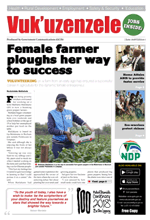
Translations
16 June 1976 – The Soweto Uprising
16 June 1976 – The Soweto Uprising LondekileThis month in history
A day that began with peaceful protesting but ended in violence, tears, blood and the death of a 13-year-old boy, Hector Peterson.
The Soweto Uprising started when more than 20 000 learners marched against the use of Afrikaans as a medium of instruction in black secondary schools on 16 June 1976. The uprising then escalated into a nationwide revolt, revitalising the struggle for liberation in South Africa.
Apart from the language issue, students also demanded an education as good as that provided for white students. Police used teargas to disperse the crowd and students threw stones in retaliation. Police then responded by firing live bullets, killing Hector Peterson.
In South Africa today this day is known as Youth Day which marks not only the sacrifices made by the youth on that day, but also of those children who defied “Bantu Education” and took up arms in the struggle for freedom.
Youth Day is commemorated annually on 16 June.
Source: www.sahistory.org
A blossoming young scientist
A blossoming young scientist UrsulaThe love for biology led Welcome to the world of botany.
At the age of 29, Ashton Welcome is already making waves in the scientific community. She has authored and co-authored three scientific articles and presented her fascinating work at various national and international conferences.
Welcome is in her second year of employment as a plant taxonomist at the South African National Botanical Institute’s (SANBI).
Her role in a field known as biosystematics is to unlock the mysteries of plant families examining the differences between species while also exploring the importance that plants have for humans and the environment alike.
“Being so interested in useful plants I began to realise the importance of the classification of plants. For example two plants may look very similar, but one of them may be an edible species and the other poisonous so you have to understand what the difference is,” Welcome explained.
She specialises mainly in the Malvaceae family of plants which includes commonly-known genera such as cotton and the hibiscus.
The Malvaceae family contains 4 225 known species and it is Welcome’s job to identify the differences between samples of species that occur in Southern Africa.
“We take these groups of species and see what the characteristics are that differentiate them. Sometimes it will be something obvious such as the flowers or leaves, but other times you will have to examine the anatomy under a microscope to spot the differences,” said Welcome.
She added that Malvaceae plants have various uses for humans.
“We all know the value of cotton in terms of clothing and textiles. Some plants also contain edible nuts, others are eaten as a traditional spinach, while some have very fibrous bark that can be used as rope.”
A love for nature
Welcome grew up in a house set amongst rocky hills close to a nature reserve in southern Johannesburg where her love for nature was ignited.
“We had a little mountain garden where I would play. I didn’t realise it at the time, but looking back I think that this is where my passion for biology and botany started,” she said.
“I loved biology at school and it was one of the subjects that I got a distinction for in matric. I was also part of the high school science club. It felt very natural for me to go into a biology-related degree at university,” she added.
Welcome took biology and botany in her first year at the University of Johannesburg (UJ). In her second year she was introduced to economic botany and the use of plants by humans. This eventually led to the PhD thesis that Welcome is working on which explores the indigenous food plants of South Africa. She has already made some interesting findings.
“The first pattern we have established is that cultural groups living in dry areas are more dependent on food plants that have a higher water content. I am very excited about discovering more through this project because it really shows how important plants are and how dependent people have been on them over hundreds of years."
Flourishing at SANBI
SANBI is a cornerstone of the scientific community in South Africa especially when it comes to botany. The herbarium contains thousands of plant specimens which researchers, universities and scientists often turn to when completing their work. Welcome is one of the people who ensures that all of this information is correctly organised, so that it can be accessed easily.
She says that SANBI plays a vital role in protecting the incredible biodiversity of South Africa.
“There is no other organisation like SANBI; certainly in Southern Africa there are none that compare. SANBI is the foundation that everyone turns to for our historical collections, library, preserved specimens and our expert researchers. These are the go-to people in the industry, and one day I hope to become a go-to person myself.”
Welcome said that the youth of today need to look at botany and science as a whole in a different way.
“The youth don’t see this as a glamourous career and some students may rather study towards careers that are portrayed as more fashionable. But I think that if more emphasis is placed on linking plants to their importance and the history of their use then that would encourage a lot more people.”
For more information on SANBI youth programmes e-mail Students@sanbi.org.za or logon to the SANBI website on www.sanbi.org/community-initiatives/student-internprogrammes
Career blossoms after helping others
Career blossoms after helping others LondekileGovernment’s social worker scholarship programme has helped another youth pursue a career she calls her destiny.
Nokubonga Mnguni’s (27) passion for caring for others has blossomed into a career in social work.
Mnguni works for the Mbombela-based Mental Health Society in Mpumalanga where she assists people with disabilities and mental illnesses.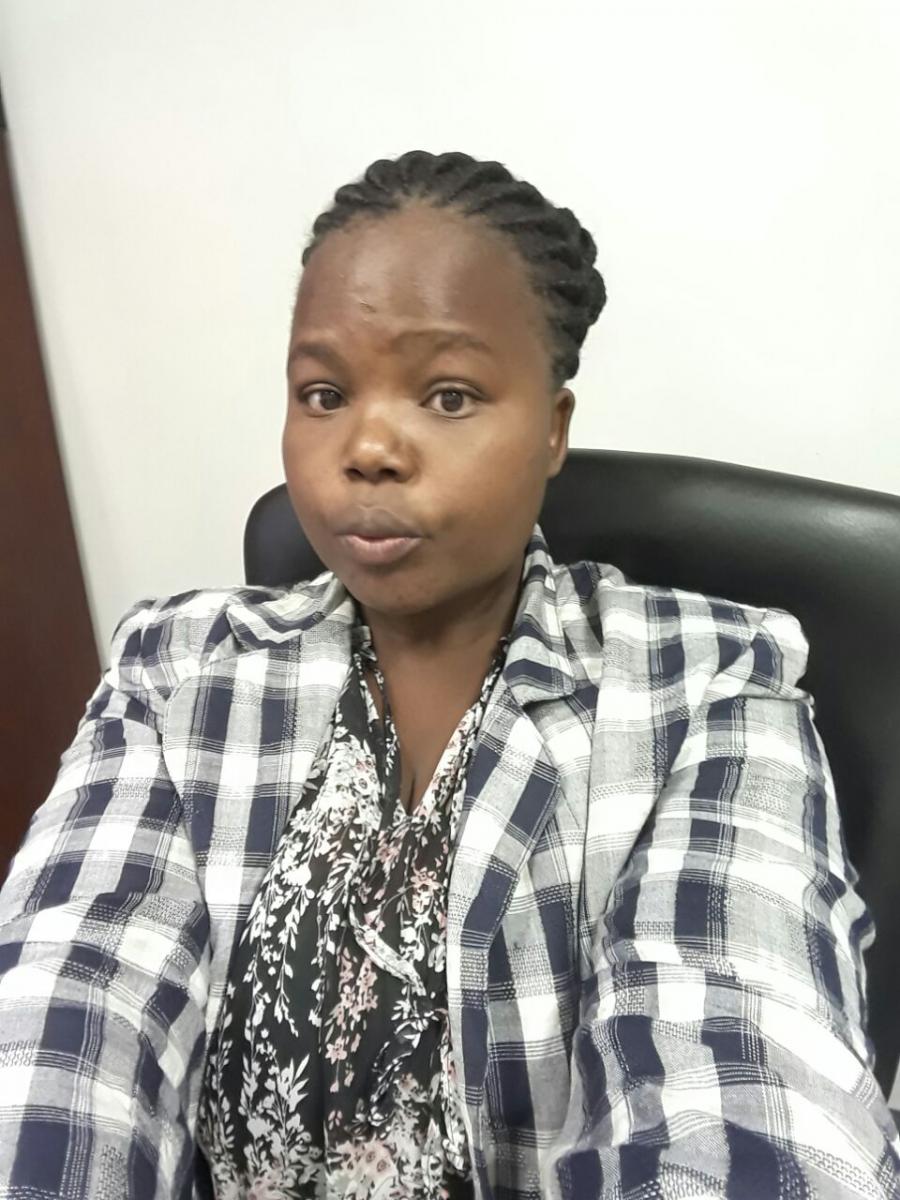
“Become a social worker because you care about people. I studied this course because I love helping people and I am passionate about it. We need more social workers in our province,” Mnguni said.
Her decision to become a social worker came naturally but was further encouraged by a scholarship from the Department of Social Development which enabled her to study at the University of Johannesburg (UJ).
“During my first year at UJ I applied for a loan from the National Student Financial Aid Scheme. I also heard about the social worker scholarship programme and took a chance applying.
“I was awarded the scholarship and I am proud to be one of its beneficiaries and a social worker. I am forever grateful for the opportunity that the Department of Social Development has given me,” she said.
Mnguni encourages young people to become social workers because they play a very important role in their communities.
Mpumalanga Department of Social Development spokesperson Pertunia Lessing said the province is struggling with a shortage of social workers.
She explained that the ratio of social workers to patients is one for every 6 776, when it should be one for every 5 000.
“Women, children, people with disabilities and the elderly, in particular, who are abused, at risk, abandoned or neglected, are dependent on specialised social work professionals,” Lessing confirmed.
Meanwhile the Minister of Social Development, Susan Shabangu said in her budget vote that the department is attending to on the challenges faced by social workers.
“There are 3 864 unemployed social work graduates even though there remains a need for their services across various sectors. The department will continuously help to explore opportunities for the absorption of these social workers into the workforce,” she said.
Creating opportunities for young people
Creating opportunities for young people LondekileFROM THE UNION BUILDINGS

For South Africans, 16 June 1976 marks the day the struggle against apartheid moved into a new phase and the youth formed the vanguard of that change.
Those brave young South Africans declared “enough is enough!” and in so doing defined a new era in the history of the struggle. Those young people demonstrated to the apartheid government their complete rejection of racial oppression.
Their bravery as they stood in front of apartheid police determined to use live rounds is legendary. The majority of South Africans supported the uprising which took the apartheid government by surprise and showed that those with initiative would lead the future.
Thanks to their struggles, and the struggles of those who followed, today’s youth live in a country free of racial discrimination and oppression and have opportunities as well as dignity.
Yet, even though we may have defeated apartheid, the youth of today still experience the effects of its legacy and hundreds of years of colonialism. Our young people are particularly vulnerable to unemployment, poverty, inequality and low skill levels and government is working hard to unravel these terrible deficiencies.
That is why our policies are geared towards ensuring that young people, in particular, thrive despite their challenges. As a pro-poor government we have a number of programmes in place to alleviate poverty. For example, our approach is directly opposite to that of apartheid – for this government cares about the majority and particularly, the black child.
While we work with communities to improve their well being, measures we have taken over time through the child support grant, free schooling, free tertiary education for those who qualify and government sponsored feeding schemes we’re seeking to improve the lot of the poor.
Look around you and take note of the access to water and electricity which has accelerated owing to government’s initiatives.
Despite these efforts up to 51 percent of young people do not finish Grade 12 resulting in problems in the search for jobs because of the level of skill required.
In March this year the Youth Employment Service (YES) was launched which is an initiative between business, government, labour, civil society and the youth which seeks to create one-year paid positions for those between 18 and 35. A minimum stipend of R3 500 will see those who are on the outside of formal employment being able to spend time inside businesses which is a crucial learning process.
This initiative complements the work already being done to tackle youth unemployment. It provides a vital ingredient that has been missing – the provision of meaningful work experience for young people on a scale that will have a significant and lasting impact on employment, on the economy and on broader society.
We all share a responsibility to ensure that young people gain the confidence, capabilities, and exposure to succeed in the working environment. That is why we have prioritised the development of pathways into work for young people.
I call on companies to join the programme, not only to increase the chances of employment for many thousands of young people, but also so that the companies themselves can develop the young workforce that they will need to expand and grow. The success of our efforts will be judged by the extent to which they create more employment and education opportunities for young people.
Together we need to build pathways for young people into the world of work and to enhance their skills. It is true that early childhood is crucial and we are determined to improve the quality and value of the learning that young people receive in our basic education system.
Both government and the private sector share a responsibility to develop the skills of young South Africans and ensure that these skills are suited to the needs of our economy, now and into the future.
At the same time it is up to our youth to seize the day and be inspired by the 1976 generation and take their future into their own hands.
Young people must rise up and use opportunities afforded to them to better their lives and their communities, to seize the initiative where they can and to develop their own networks and develop their own businesses where possible.
It is encouraging to see that access to higher education and training has grown over the last two decades, significantly increasing the number of people in the workforce who hold degrees and diplomas.
Young people who have worked hard in their studies and finally have degrees and diplomas must use their qualifications to expand their possibilities while building their careers. These young people are part of a new generation of skilled young South Africans building a new inclusive economy.
They must remember that their families, communities and country have invested much in them and it its their responsibility to use our free education initiative properly.
Together, we are working to build a society that is fundamentally different from the one that has come before.
Let us work together to secure a better future for all our youth.
Deadline looms for NSFAS recipients
Deadline looms for NSFAS recipients UrsulaThe new agreement between students and NSFAS states that learners must pass at least 50 percent of all courses in the first year and in the following years of study.
 If you are a first year student who has qualified to get a bursary from the National Student Financial Aid Scheme (NSFAS) you need to ensure that you have signed your bursary agreement by 31 July 2018.
If you are a first year student who has qualified to get a bursary from the National Student Financial Aid Scheme (NSFAS) you need to ensure that you have signed your bursary agreement by 31 July 2018.
NSFAS recently announced that it was implementing its new National Student Financial Aid Scheme Bursary Agreement (NBA) which came about as a result of government’s fee-free education announcement.
NSFAS transformed from a loan and bursary funder to a government funder.
The NBA is only applicable to first-time entering students and senior students who applied to the NSFAS for the first time this year.
NSFAS sent an email notification to students from the universities of Cape Town, Sol Plaatjie and the Mfolozi, as well as Port Elizabeth and Motheo technical vocational education and training colleges in early May.
Notifications will also be sent to all other universities and colleges.
“The email notification contains a link on which students must click. The link will take them to an online version of the NBA which they have to sign by the deadline.
“The NSFAS is concerned that the process is moving slowly. By 15 May we had generated 37 893 NBAs, but only 5 063 had been signed,” a spokesperson for the scheme said in a statement.
Affected students who fail to sign the NBA by 31 July 2018 will not have their bursaries paid.
The NBA also has new terms and conditions which students must to adhere to.
Students who sign an NBA:
- Can’t relinquish, assign, transfer or delegate any of their rights or obligations under the agreement.
- Must focus on their studies and adjust themselves to university life in a responsible and disciplined manner.
- Must comply with academic requirements, such as attending classes and participating in lectures, tutorials and academic support programmes.
- Must complete all set assignments and tasks and undergo all tests and examinations (written and oral).
- Must pass at least 50 percent of all courses in the first year and pass sufficient courses in subsequent years.
- Students who immigrate have to pay the bursary back in full before they leave the country.
- From the second year of study beneficiaries must participate in a minimum of 10 days or 80 hours of community service or special project work per year.
If students do not honour these obligations the NSFAS can terminate the NBA.
How to sign the NBA
All students affected by the NSFAS NBA have to sign the new bursary agreement by 31 July 2018. The NBA can be signed online or manually.
Online signing process
- You will receive an email from the NSFAS.
- The email will contain a link. Click this link. You will be directed to an online portal.
- Insert your ID number. The system will send you an SMS, which contains a One Time Pin (OTP). The OTP will be sent to the cell phone number that you registered with the NSFAS.
- Use the OTP to sign the NBA online.
- When you have done this, you will see a notification indicating that the NBA terms and conditions have been submitted.
If your cell phone number has changed you must email a certified copy of your green barcoded ID or smart card and an affidavit stating that you have changed your number and providing your new number to uds@nsfas.org.za.
Manual signing process
If the online signing option is not functioning optimally, the NSFAS will make a manual NBA available for onsite physical signing. This will be driven by the NSFAS Servicing Team at the scheme’s offices.
This option should only be used as a last resort as manual forms will delay approval and payment.
“We encourage all institutions to assist us to get students to sign the NBA by the required deadline,” the NSFAS said in a statement.
For more information, contact the NSFAS at 0860 067 327
Eco-warriors protect rhinos
Eco-warriors protect rhinos UrsulaAn Environmental Expanded Public Works Programme is ensuring both job creation and wildlife protection.
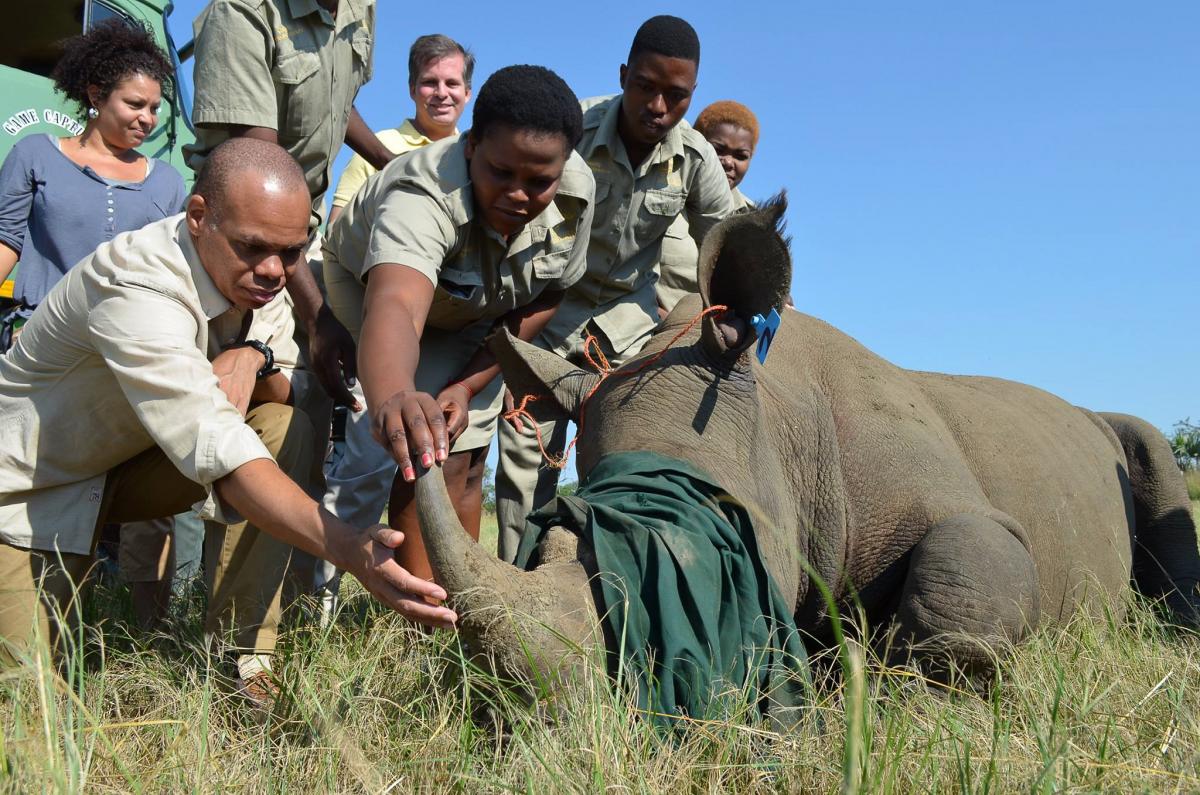
Environmental monitor Phakamani Nyawo (26) based at Umkhuze Game Reserve in KwaZulu-Natal is one of 1 659 monitors who have been entrusted by South African National Parks (SANParks) to look after the environment in public and private nature reserves across South Africa.
Nyawo, who is part the environmental monitor project run by the EPWP, believes it is important to educate communities about looking after the environment.
“We need to go out there and make the community understand why it’s important to conserve nature. It is only then that the community will understand the role of wildlife,” he said.
The programme equips young South Africans with the skills they need to work in nature conservation and biodiversity and has ensured that Nyawo is able to look after his family.
“My family’s home has a great roof now without leaks, and it’s because of my job. I am pleased that I got this opportunity,” he said.
The Minister of Environmental Affairs Dr Edna Molewa has dubbed monitors as ‘eco-warriors’ because they play a crucial role in fighting environmental crime such as rhino poaching.
“Last year about 1 659 environmental monitors were deployed to rhino poaching hotspots to assist with environmental protection. They will be empowered to become rhino ambassadors in these areas,” she said.
Nyawo was also part of the team that caught a poacher in the Umkhuze Game Reserve which led to a criminal conviction.
“I was proud of my efforts and in this case experience was the best teacher as it led to catching the poacher,” he said.
The programme has been instrumental in assisting with the successful arrest, investigation and sentencing of poachers, reducing wildlife poaching by 50 percent and ensuring a 76 percent decrease in animal trapping.
Did you Know?
The Department of Environmental Affairs has spent R235 million equipping young people with environmental skills.
Female farmer ploughs her way to success
Female farmer ploughs her way to success Estelle GreeffVolunteering on a farm from an early age has ensured a successful career in agriculture for the dynamic female entrepreneur.
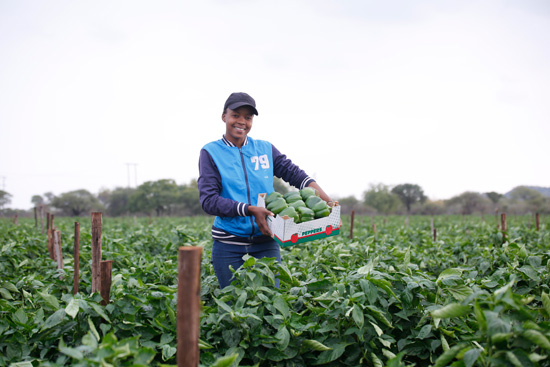 From being poverty stricken and teased for working on a farm Mahlatse Matlakane (20) is now a beaming green pepper farmer.
From being poverty stricken and teased for working on a farm Mahlatse Matlakane (20) is now a beaming green pepper farmer.
Mahlatse began volunteering at a local green pepper farm over weekends and school holidays at the age of 15 to help her unemployed mother put food on the table.
Matlakane is based in Ga-Moisimane in Buchum just outside Polokwane in Limpopo.
She said although she is enjoying the fruits of her labour it was not always easy.
“Growing up was very hard for my siblings and I. My peers used to mock me when I started working on the farm and said that farming was for illiterate people.
“This hurt my feelings but I wanted to gain knowledge in farming so that I could pursue it as a career,” she said.
When Matlakane had gained some experience she approached the owner of the farm where she was volunteering Johan Nel about planting her own seeds and growing peppers.
Nel gave her two hectares of land on his farm.
“I was amazed by how small seeds could turn into plants that produced big green peppers. Seeing how the plants were taken care of by using fertilisers to control bugs made me fall in love with farming even more. I knew right there that this is what I wanted to do,” said Matlakane.
After completing matric Matlakane took a gap year despite having been accepted at the University of Johannesburg to study law.
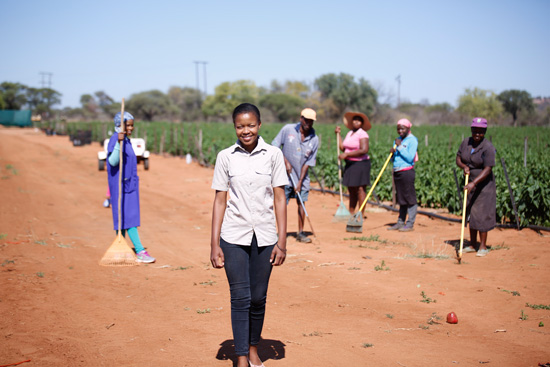 She went back to Nel to ask him for more farming assistance and he suggested that she speak to a chief in the area about the possibility of giving her land.
She went back to Nel to ask him for more farming assistance and he suggested that she speak to a chief in the area about the possibility of giving her land.
After seeing her progress on Nel’s farm the local chief gave her 40 hectares of land on the Babirwa Ba Tau Ya Tswala farm from where she now runs her business. She has employed four young people to work on the developing farm business.
Matlakane’s farm supplies green peppers to fresh produce markets in Bochum, Polokwane and Johannesburg.
While her business has a comfortable monthly turnover Matlakane has her sights set on breaking into the international market.
Matlakane said she is positive about her future and has a goal is to uplift poverty-stricken community members by providing skills and employment as her business continues to grow.
Fighting corruption
Fighting corruption Londekile
Fired up about job creation
Fired up about job creation UrsulaWith fire season approaching Vuk’uzenzele found out about a successful government-funded programme that prevents and controls wild fires.
Working on Fire (WOF) manages an integrated fire management programme which has ensured employment for many youngsters from marginalised communities.
Funded by the Department of Environmental Affairs the programme falls under the Expanded Public Works Programme (EPWP).
It provides hope to many young people who can’t find jobs and has achieved remarkable success in the prevention and control of wild fires lessening their impact.
The programme employs over 5 000 people from marginalised communities and has trained them in fire awareness, education, prevention and suppression, as well as other skills, such as first aid, carpentry, cooking, health and safety and communications.
WOF communications officer Lebogang Maseko explained that the programme targets youth and employs people with disabilities to work at its provincial bases.
“We place a strong emphasis on skills development and providing jobs to youth who are fresh out of high school or who have just graduated from tertiary institutions. Of the programme’s recruits 94 percent are youth, 31 percent are female and three percent have a disability,” she confirmed.
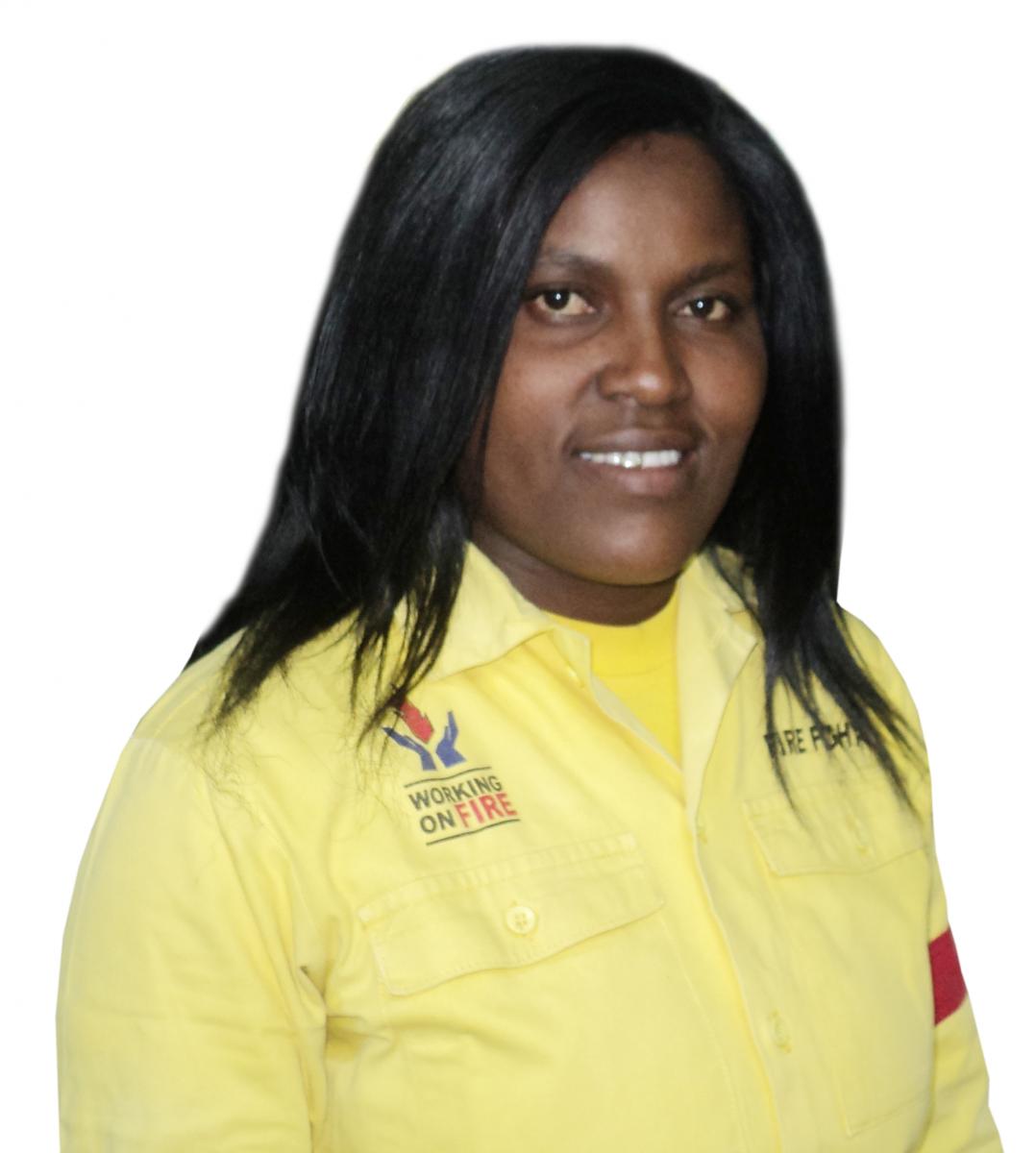 Lorraine Mokoena (31) from Mpumalanga is one of the recruits who benefited from the programme. She has been working at WOF for the past 11 years.
Lorraine Mokoena (31) from Mpumalanga is one of the recruits who benefited from the programme. She has been working at WOF for the past 11 years.
After completing matric she struggled to find employment for two years. Her sister then told her about the WOF programme.
“The application process was tough. Fitness is the most important criteria for the job and new recruits are put through their paces. Once you pass the test you have to pass a medical examination and then the firefighting training begins,” she said.
Mokoena started as a junior firefighter and has worked her way up to the position of senior crew leader, leading a team of 18 firefighters.
“This job has changed my life. I am the only bread winner for my siblings and two children. I can now feed my family and send my children to school,” said Mokoena.
She admitted that the firefighting arena is generally a man’s world and she has learnt to be tough as a woman in this field.
Mokoena has set her sight on becoming a ground operations manager within the next two years. This will make her responsible for all WOF teams located in Mpumalanga.
With fire season upon us Mokoena offered the following tips to prevent veld fires:
- Don’t light fires in the open if you cannot control them.
- Ensure that you have enough help and equipment to cope with all eventualities.
- Don’t leave a fire unattended
- Keep an eye on the weather.
- Fires in the open should not be lit on very hot or windy days.
For more information about the WOF programme contact 021 418 2569 or 082 508 0990 or email: news@wofire.co.za.
First South African to compete in the Miss Plus World Pageant
First South African to compete in the Miss Plus World Pageant LondekileThe organisers of Miss Plus World selected Dipolelo Hou to represent South Africa after she won the national title in 2017 based on her philanthropy work.
Dipolelo Hou (35) is set to make history as the first to represent South Africa in the Miss Plus World Pageant, which will be held in Atlanta in the United States of America on 25 July.
The Miss Plus World Pageant and its subsidiary, the Miss South Africa Plus World showcases the intelligence, articulation, creativity, leadership, grace and beauty of women across the country and the world.
Hou shared her excitement with Vuk’uzenzele and said she plans to fly the South African flag high at the pageant.
“I am humbled by this great achievement. I am planning to share good stories about my country when I get to Atlanta. I am very proud of my country’s eleven official languages and the treasures found in various provinces. South Africa has a rich history. I will give the world a clear picture of what South Africa is all about,” said Hou.
The organisers of Miss Plus World selected Hou to represent South Africa after she won the national title in 2017, based on her philanthropy work. The organisers monitored her lifestyle and charity work from afar.
Born in Botshabelo in the Free State, Hou has done various charity work in her community which includes working with local libraries to promote the culture of reading among children, spending time and buying gifts for hospital patients during the festive season, visiting old age homes and working with a local cancer association.
She also organises sanitary towels for girls from poor families. “I am a servant of the people. I always do my best to help people who are in need and within my reach,” she said.
Hou is planning to bring the world title home and believes that she will have the capacity to do more humanitarian work on a global platform.
She feels that she is a perfect contestant because the organisers are looking for a queen who will reach out to various communities across the world as well as her country of birth.
Hou is proud of being a size 40 and encourages other plus size women to love themselves and embrace their cellulite.
She has a full-time job as a personal assistant to the Free State MEC for Sport, Arts, Culture and Recreation, Mathabo Leeto.
The Miss Plus World seeks to strengthen communication and engage in open dialogue with women from across the world about the issues that affect them.
Great strides made towards healthcare for all
Great strides made towards healthcare for all UrsulaThe National Health Insurance pilot project moves to the next phase.
The Minister of Health Aaron Motsoaledi highlighted progress made with regard to the National Health Insurance (NHI) in its 10 pilot sites across the country during his Budget Vote.
This year will mark five years since the beginning of preparatory work for the NHI and great strides have been made. The department is now completing the construction and refurbishment of 701 clinics within and outside of the 10 pilot districts at a cost of R40 billion for infrastructure and almost R2 billion for equipment.
“In addition we are constructing consulting rooms for doctors who visit our clinics on a contract basis. We have completed 142 and we are busy with 21 and will have 163 in total. There are also new and refurbished hospitals and refurbished nursing colleges within and outside of the pilot districts,” said Minister Motsoaledi.

Monitoring medical stock electronically
Minister Motsoaledi said the department has implemented various systems in hospitals to ensure that clinic medicine stocks are monitored and replenished.
The Stock Visibility System (SVS) measures clinic stock levels electronically by scanning a packaging code with a special cell phone application. Once scanned, the stock level is reported to an electronic map of all clinics in the country at the central tower in Pretoria.
Minister Motsoaledi said, “We are proud to announce that we have the SVS in
3 163 clinics, 658 of which are within the NHI pilots, since we started implementing in July 2014.”
The Rx Solution and other electronic stock management systems work in a similar fashion to SVS and have been installed at 80 percent of 10 central hospitals, 94 percent of 18 provincial tertiary hospitals, 83 percent of 47 regional hospitals and 71 percent of 254 district hospitals.
CCMDD programme brings relief to clinics
The NHI has also seen the implementation of the Central Chronic Medicines and Dispensing and Distribution programme (CCMDD) which helps relieve congestion at clinics and hospitals.
“Patients who are stable and on chronic medication do not have to visit clinics anymore, except maybe after six months for check-up. They can collect their medicines at 401 pickup points around the country. A total of 1,3 million patients are using the system.”
Motsoaledi revealed that the department has implemented a unique patient identifier system that ensures that patients are recognised at every clinic they visit.
The department worked with the Council for Scientific and Industrial Research, the Department of Science and Technology and the Department of Home Affairs to implement the system, which is in operation at 1 859 clinics, 705 of which are in pilot areas.
“South Africa has never had a patient information system that allows us to follow a patient from one facility to the other.
"This means that one patient can visit many facilities on one day and collect medicine and receive similar services without us knowing because there is no system to detect this,” the Minister said.
Over six million South Africans are already registered on the system, with 80 000 to
100 000 people being registered per day.
This Unique Patient Identifier is linked to a patient’s ID number so they have the same number for life. People can register at any of the
1 859 facilities and it only takes five minutes. Once registered, it only takes 45 seconds to retrieve their file on their next visit.
Motsoaledi said that the pilot programme has screened 3,2 million school children for physical barriers to learning and found that over 500 000 have health issues that require the help of medical specialists.
The pilot programme funds their treatment and offers antenatal care, family planning, breast and cervical cancer screenings and treatments to 1,2million women who fall pregnant annually.
The NHI also provides better services for those in need of mental health assistance. Motsoaledi said it would help the elderly and disabled with assistive devices, like hearing aids and wheelchairs, and will clear up the backlog of cataract operations for the elderly.
The NHI is a financing system that will ensure that all South Africans are provided with essential healthcare regardless of their employment status and ability to make a direct monetary contribution to the fund.
Home Affairs bionic system to provide faster service
Home Affairs bionic system to provide faster service Estelle GreeffThe new biometric system called ABIS will be rolled out over a period of five years.
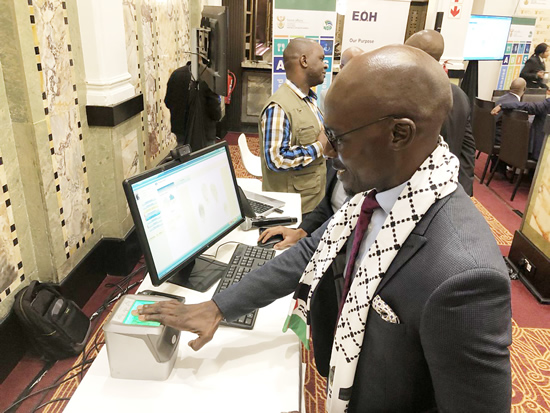 The new Automated Biometric Identification System (ABIS) will have an impact on the turnaround time for issuing ID documents, passports, and will reduce the duplication of identities.
The new Automated Biometric Identification System (ABIS) will have an impact on the turnaround time for issuing ID documents, passports, and will reduce the duplication of identities.
That is according to Minister of Home Affairs Malusi Gigaba who recently launched ABIS which is said to change the way in which South Africans are identified and will form the backbone of how the public and private sector will manage the authentication of their clients.
ABIS will be the identification and security solution in support of national government’s drive towards modernisation of all departments for service efficiency.
The system will offer a single source for biometric authentication for South Africans.
“The ABIS project will be rolled out in phases over a five-year period. Implementation will entail migration of the current Home Affairs National Identity System (HANIS) data fingerprints and facial recognition to the new ABIS with improved functionality, installation and configuration of ABIS infrastructure and building of system functionalities,” he said.
The country’s banks will be able to verify client identification quicker and the tourism sector will benefit due to quicker response times at ports of entry to capture and verify a traveller’s identity.
Minister Gigaba also said the SA Police Service will be able to search for suspects by matching latent prints against ABIS records. The system will also lead to improved border control which should create a competitive economic environment to attract critical skills, enable growth, increase foreign direct investment and create jobs.
Minister Gigaba said the ABIS project was initiated in January 2016 with the aim to replace the national security system.
Minister Gigaba said one of the major challenges that were faced with the national security system was the imminent collapse of the over 20- year-old biometrics database which left the department with no choice but to carry out a technology upgrade.
Minister Gigaba added that the department partnered with the Council for Scientific and Industrial Research to develop specifications for a new biometric database.
He said the department worked with the State Information Technology Agency to procure a future-fit Automated Biometric Identification system.
Did you know?

The Department of Home Affairs has issued 10 million smart ID cards.
Hope for former drug addict
Hope for former drug addict LondekileMinister of Social Development Susan Shabangu has pledged that the department will work towards a society free of the demand and supply of drugs.
Speaking at the national budget vote Minister Shabangu said that the department would work with the National Drug Authority on Integrated Anti-Substance Abuse Programmes to eradicate substance abuse in communities. She said the department would also take forward the work it had begun on the National Drug Masterplan 2018-2022.
During her speech Minister Shabangu said the lucrative profits derived from the drug and substance trade are encouraging criminal activities in South Africa.
In line with this Vuk’uzenzele spoke to a former drug addict and inmate at Atteridgeville Correctional Centre in Pretoria to find out how his life changed after his imprisonment.
It is a very different life from the one he had been living prior to his arrest in 2016. He is currently serving a three-year sentence for theft at the Atteridgeville Correctional Centre in Pretoria.
His arrest came after a 12-year long drug addiction which saw him turn to crime.
“I started taking drugs while I was in school. My friends were smoking and taking drugs, and they pressured me into taking drugs, too,” he said.
He began to take nyaope, ecstasy and ‘rock’ which is the street name for crack cocaine, which he bought from drug dealers near his home.
“I would use my spending money for school to pay for drugs. I would even ask my neighbours for money and tell them it was for school materials. My mother would pay them back and not question why I was borrowing money,” he said.
The death of his young son in 2011 also caused the 29-year-old to seek solace in drugs.
Soon he turned to theft to keep up his drug habit. At first he would steal his neighbours’ cutlery. He was eventually arrested for stealing from a local supermarket in early 2016.
“I filled my trolley up with groceries and tried to leave the shop. The security guards stopped me at the door and they arrested me,” he said.
He was taken to the Kgosi Mampuru II Correctional Facility and then Atteridgeville Correctional Centre after being sentenced to three years in prison.
“My family was shocked about what had happened. I had let them all down. My mother had a stroke four months into my sentence and died. It was painful. I knew I had a lot to think about.”
The inmate who wished to remain anonymous was optimistic about the future.
He is studying certificate in agriculture and will be released in October next year.
“Drugs turn you into a monster. No one can ever trust you again. Seek help if you can. I no longer have a taste for drugs. I know that I will never succeed if I go back,” he said.
For more information on overcoming drug addiction you can call the South African National Council on Alcoholism and Drug Dependence (SANCA) on 011 892 3829 or logon to http://www.sancanational.info/
Housing credit for low-income earners
Housing credit for low-income earners LondekileWhether you want to build a new house or renovate an existing building the Rural Housing Loan Fund (RHLF) can help you.
The Department of Human Settlement’s Rural Housing Loan Fund (RHLF) can help low-income earners from rural areas who have limited options when it comes to accessing funds to build or renovate their homes. 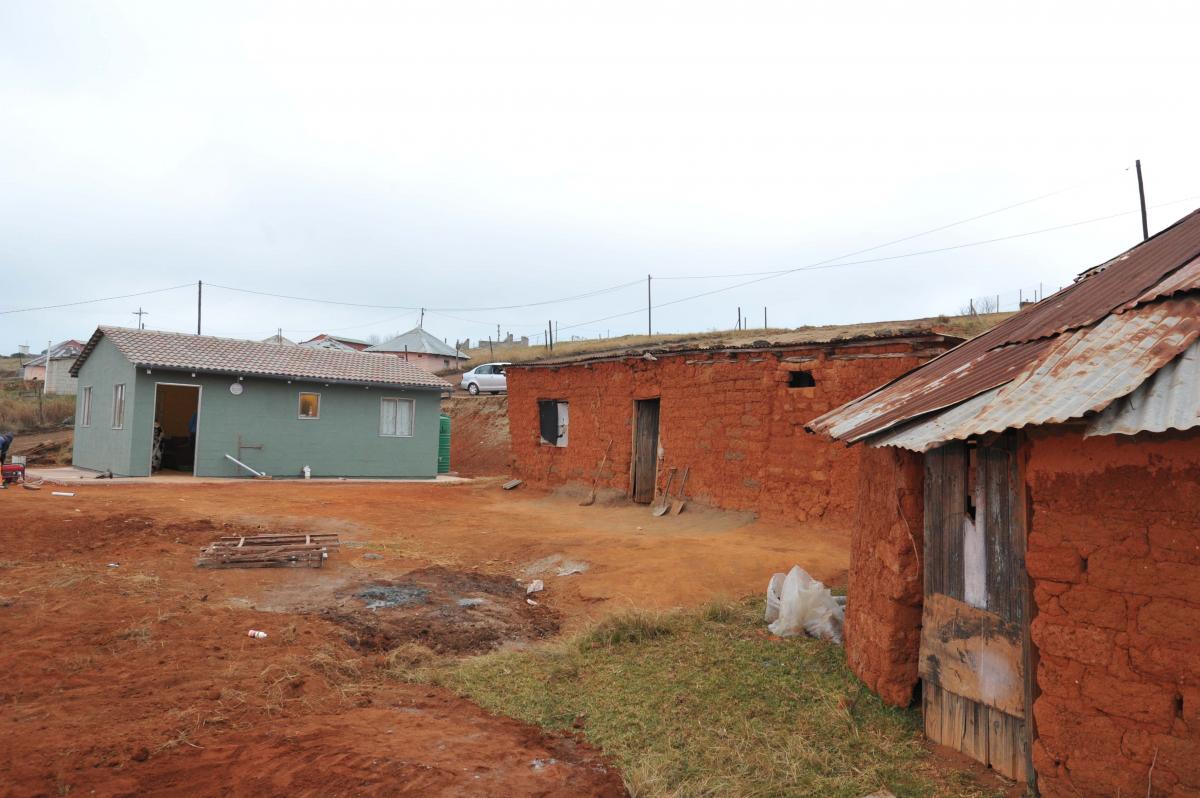
The RHLF, a state-owned wholesale development finance institution helps these citizens to access housing credit and government housing subsidy funds.
The RHLF offers incremental housing finance to low-income earners through approved intermediary partners, including micro- finance lending institutions registered with the National Credit Regulator; cooperative financial institutions; and community-based organisations, such as stokvels and building clubs.
These partners borrow funds from the RHLF and lend to individual borrowers throughout South Africa’s rural areas including small towns and secondary cities.
Motsei Sebolao (68) from Borakalalo Village in Zeerust is one of the people who have benefitted from RHLF’s services.
She took a loan of R5 060 from RHLF intermediary lender Kabo Financial Enterprise in February 2017 to complete the extension of her house.
“I needed money to purchase additional roofing material for another room. I used to live in a two-room house with my children and grandchildren. I managed to extend the house by another three rooms but I ran out of roofing material. Kabo Financial Enterprise helped me to accomplish my dream.
“I now live in a five-room house with my four children and three grandchildren,” she said.
Sebolao receives a government social grant and gets financial help from her daughter, who is volunteering as a teacher at Motswedi High School near her home.
She used her social grant money to build her home because all of her children are unemployed.
Sebolao is expecting to repay the loan by February 2019 and is happy with the service she received from Kabo Financial Enterprise.
Interested lenders can contact the RHLF by emailing mmothobi@rhlf.co.za, calling 011 644 9887 or visiting the website www.rhlf.co.za.
Increasing access to animal health services
Increasing access to animal health services JoyLike humans and all other living beings, animals also have a need when it comes to their health care needs.
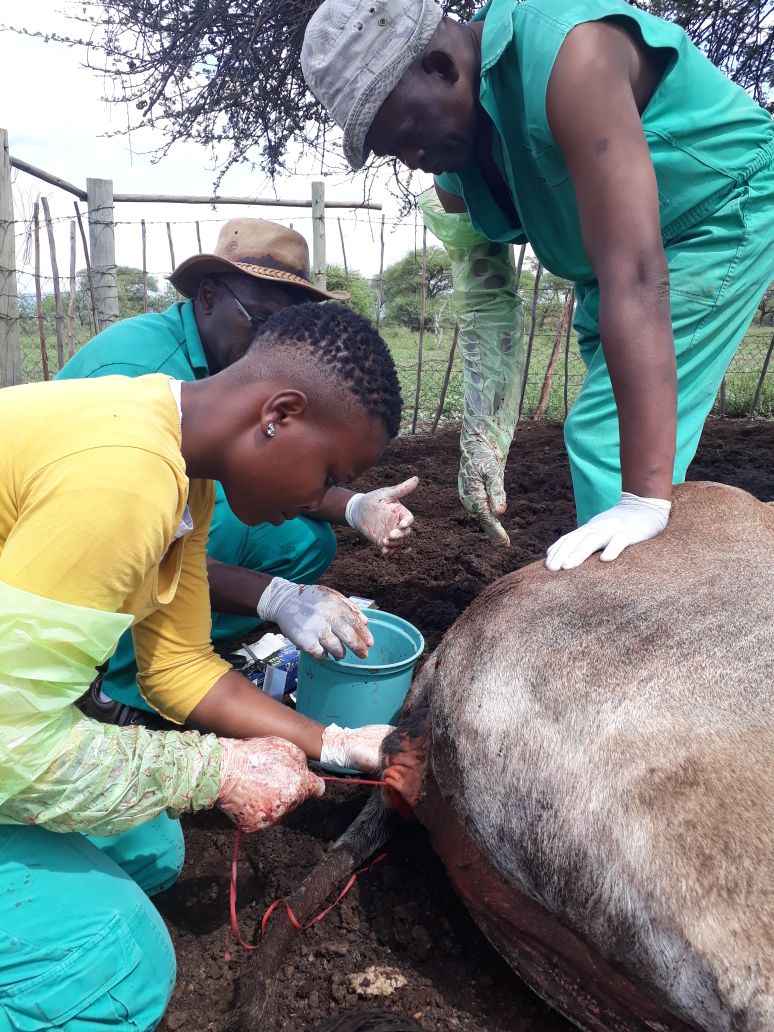 This is why the North West Department of Rural Environment and Agricultural Development is increasing efforts to strengthen the veterinary services in the province.
This is why the North West Department of Rural Environment and Agricultural Development is increasing efforts to strengthen the veterinary services in the province.
The department has already placed eleven veterinarians in rural areas of the province as part of their one year compulsory community service to ensure that all threats to animal health and food safety are detected and dealt with as early as possible.
The department said the objectives of Veterinary Compulsory Community Services programme (CCS) is to provide accessible and affordable veterinary services to under-served and poor resourced areas in the country.
The newly deployed veterinarians have been sent veterinary offices in local municipalities including Kagisano, Taung, Ramotshere Moiloa, Madibeng, and areas around Potchefstroom centres.
Dr Mukani Nobela who is one of the Veterinarians told Vuk’uzenzele about the importance of keeping animals healthy.
“Animals are living breathing beings just like human beings. They feel pain and get sick but most importantly, some protect us and others feed us, so we need to take care of them,” the 27-year-old said.
Nobela works in a veterinary office in Madibeng Local Municipality but from time to time is called to go provide her specialised services in different households across Madibeng.
Part of her daily job is to vaccinate dogs and cats as well as treating livestock for different diseases including Transmissible Venereal Tumor (TVT).
The University of Pretoria graduate said she chose her career path because while she was growing up in Giyani, Limpopo she did not see anyone taking care of animal health in her community.
She sees working in the North West as an opportunity to motivate community members to care for their animals, as it is a rural province and also hopes to inspire black females in the area to follow in her footsteps.
“The North West was my first option mainly because there is a lot of animal production taking place here and it is close to my home province,” Nobela said.
She also hopes to increase her skills and knowledge with regard to field work for domestic or companion animals and those used in agriculture.
The department said CCS veterinarians are expected to make use of the already existing communication channels with the community in order to establish mobile community veterinary clinics.
“This does not replace the standing work that is conducted routinely by Provincial Veterinary Services, but is an extension of the services,” the department said.
In order to fulfil the requirements of South African Veterinary Council (SAVC), cases that are diagnosed in the field and that may require extensive treatment and hospitalisation will be referred back to a stationery registered clinic of the province.
The newly qualified Veterinarians operate under strict monitoring by the Veterinary Council and will receive a certificate of full completion at the end of their contract with CCS year and only then can they operate in places of their own choice.
Jobs: GCIS
Jobs: GCIS Estelle GreeffDirector-General: Government Communication and Information System (GCIS) (Five-Year Renewable Contract)
Salary: All-inclusive salary package of R1 782 687 per annum of which 30% may be structured according to the individual’s needs
Centre: Pretoria
Closing date: 1 June 2018
Requirements: Qualifications: A degree and post graduate degree (NQF level 8) as recognised by SAQA. Experience: 8-10 years at senior management level of which at least three (3) years’ experience must be within any organ of State as defined in the Constitution, Act 108 of 1996. Skills: Excellent written and verbal communication skills and the ability to interact with people at all levels. Strong creative, strategic, analytical, organizational and interpersonal skills at all levels. Innovative and creative thinking, computer literacy. Job Knowledge: Extensive knowledge of the South African communications landscape. An understanding of government communication discipline. An in-depth knowledge and understanding of government policies and programmes. Competencies Required: Strategic capability and leadership, financial management, problem solving and analysis, people management and empowerment, project management, knowledge management, change management, service delivery innovation.
Duties: Reporting to the Minister, the Director-General will be responsible for providing strategic leadership and direction in delivering the mandate of the Department. Serve as a spokesperson of Cabinet and government. Provide leadership in the development of generic communication strategies across government’s national departments. Ensure integration, coherence and standard performance of communication within national government and across all spheres of government. Ensure the implementation of development communication. Enhance government’s communication platforms, products and services in order to grow the voice of government. Lead the media bulk buying strategy of government and realise the intended savings. Oversee the function of GCIS and act as the Accounting Officer. Provide effective and timely support to the Minister and Deputy Minister, including participation in the Forum of South African Directors-General Cluster’s work.
Note: The successful candidate must disclose to the Minister particulars of all registrable financial interests and sign the employment contract within one month from the date of assumption of duty as well as sign a performance agreement with the Minister within three months from the date of assumption of duty.
Enquiries: Mr Keitumetse Semakane, Tel 012 473 0128/ 0796961826
Minimum Wage Bill passed
Minimum Wage Bill passed JoyThe passing of the National Minimum Wage Bill, which will ensure that employees are paid a decent wage and protected against exploitation in the workplace, has been hailed a victory for workers across South Africa.
The bill was approved during the plenary sitting of the National Assembly on Tuesday 30 May, along with the Basic Conditions of Employment Amendment Bill, the Labour Relations Amendment Bill and the Communal Property Associations Amendment Bill.
According to the Department of Labour, more than six million workers are expected to benefit from the National Minimum Wage once it signed as a law by President Cyril Ramaphosa.
The bill proposes that the National Minimum Wage level be set at R20 per hour while the minimum wages for domestic and farm workers will initially be set at R15 and R18 an hour respectively.
The bill will go to the National Council of Provinces for concurrence.
According to a parliament statement, the bill will ensure that the pervasive, entrenched exploitation of workers in various sectors of the economy is halted.
News on the passing of the bill, however, was met with little joy by some workers.
A security guard employed by a private company spoke to Vuk’uzenzele on condition of anonymity.
She said that she currently earned a little over R19 an hour already and did not receive any benefits, so the minimum wage would not make much difference.
“I work from 6AM to 6PM. That is 12 hours a day. We work abnormal hours, longer hours than most people. R20 is just not enough for us,” she said.
With children and spouses to look after, travel expenses, medical bills and other debts to pay, she was not coping financially.
“We are working under extremely stressful conditions. We wake up at 2AM to be here by 6AM. We get home late and have limited time with our families. We are denied lunch breaks.
“We are also doing the work of police officers. We work with criminals, and we have to guard over large amounts of money. We are working in dangerous conditions just like the police, but we are not appreciated and paid enough for the work we do,” she said.
She suggested that a minimum wage ranging from R5 500 to R7000 a month would be of greater help in covering her expenses.
“Our employers have not spoken to us about the minimum wage and what will happen. Every year we go to the CCMA and we negotiate our wage increase, but we don’t get what we ask for and our supervisors don’t fight for us. I pray and beg that we will be heard and be paid properly one day,” she said.
But other workers have welcomed the introduction of a higher minimum wage which has been planned by government for some time.
On Twitter, Commander in Chief Moscow (@moscow_monyeki) said, “There are people who used to get or even now are getting less than R20 per hour, so let's give it a chance and we will judge if it fails. Some are happy about this minimum wage.”
Bulelani Mbovu (@bujeroSA) also shared a positive outlook on the bill.
“I’m happy that the National Assembly has agreed and endorsed the minimum wage bill. This is indeed the start we need. We must, however, continue to pursue a living wage.”
The National Minimum Wage Bill was introduced in November last year by Labour Minister Mildred Oliphant and it aims to improve the wages of the lowest paid workers.
The bill would be supported by the Labour Relations Bill, which would address strikes and strengthen collective bargaining.
The Basic Conditions of Employment Bill would be the basis behind the setting up of a National Minimum Wage Commission, which would review the minimum wage annually and enforce it in the workplace.
New milestone for KZN circumcision programme
New milestone for KZN circumcision programme LondekileMelusi Yende is the one millionth person to undergo male medical circumcision in KwaZulu-Natal as part of a massive campaign to encourage men to get circumcised.
Male medical circumcision reduces the chances of being infected by HIV and Aids and sexually transmitted infections. 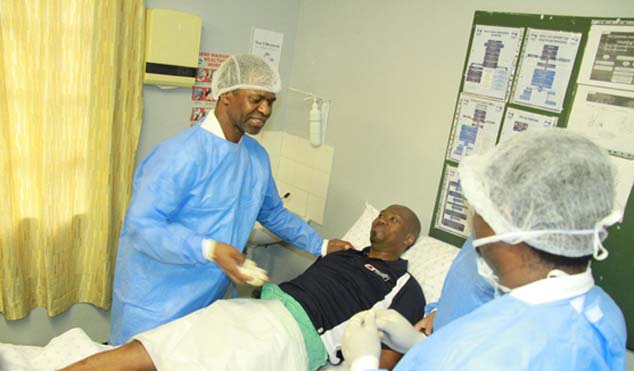
Speaking to Vuk’uzenzele after the minor procedure, Yende encouraged men to get circumcised.
“I am a proud KwaZulu-Natal son. I wanted to use my profile to speak to men in the province and educate them about the health benefits of being circumcised. Today is a very proud day for me,” said Yende.
The event which was held at Sivananda Clinic at Ohlange in Inanda, Durban, was part of the celebration the success of the Medical Male Circumcision (MMC) programme in the province.
Yende is also a well-known actor who has appeared in television programmes such as Generations, Muvhango and Rhythm City.
He added that he was happy to be the one millionth man to be circumcised.
“I am hoping that this initiative will encourage other men to go to their nearest clinic to get circumcised. I want people to know that if I can do it so can they. I am encouraging men in KwaZulu-Natal to ensure two million men get circumcised.”
Yende added that going under the knife and being circumcised by the KwaZulu-Natal Health MEC Dr Sibongiseni Dlomo was nerve wrecking and exciting.
“I had mixed emotions about being circumcised. I was nervous and excited but MEC Dhlomo was professional and he let me know what was going to happen. Everything was fine the procedure only took about 15 minutes.”
MEC Dlomo said having one million men circumcised in his province was a good story to tell.
“It is not just the process of circumcising that is an issue it is the period that comes after and the benefits for men who are circumcised … We are informed by researchers that there is a protection of up to 60 percent, this is not 100 percent which means you must use a condom over and above being circumcised.”
The MMC programme works in combination with condoms and other prevention strategies.
Isilo Samabandla namaKhosi King Goodwill Zwelithini leads the MMC campaign in the province.
Patience and passion makes piggery 'cool'
Patience and passion makes piggery 'cool' LondekileWhile leaving a full-time job to start a farming career is too scary for some, others take the plunge and live their dream.
Bubbly pig farmer Miriam Mulungo (49) says farming is ‘cool’ and it is the responsibility of every South African to play their part in food security.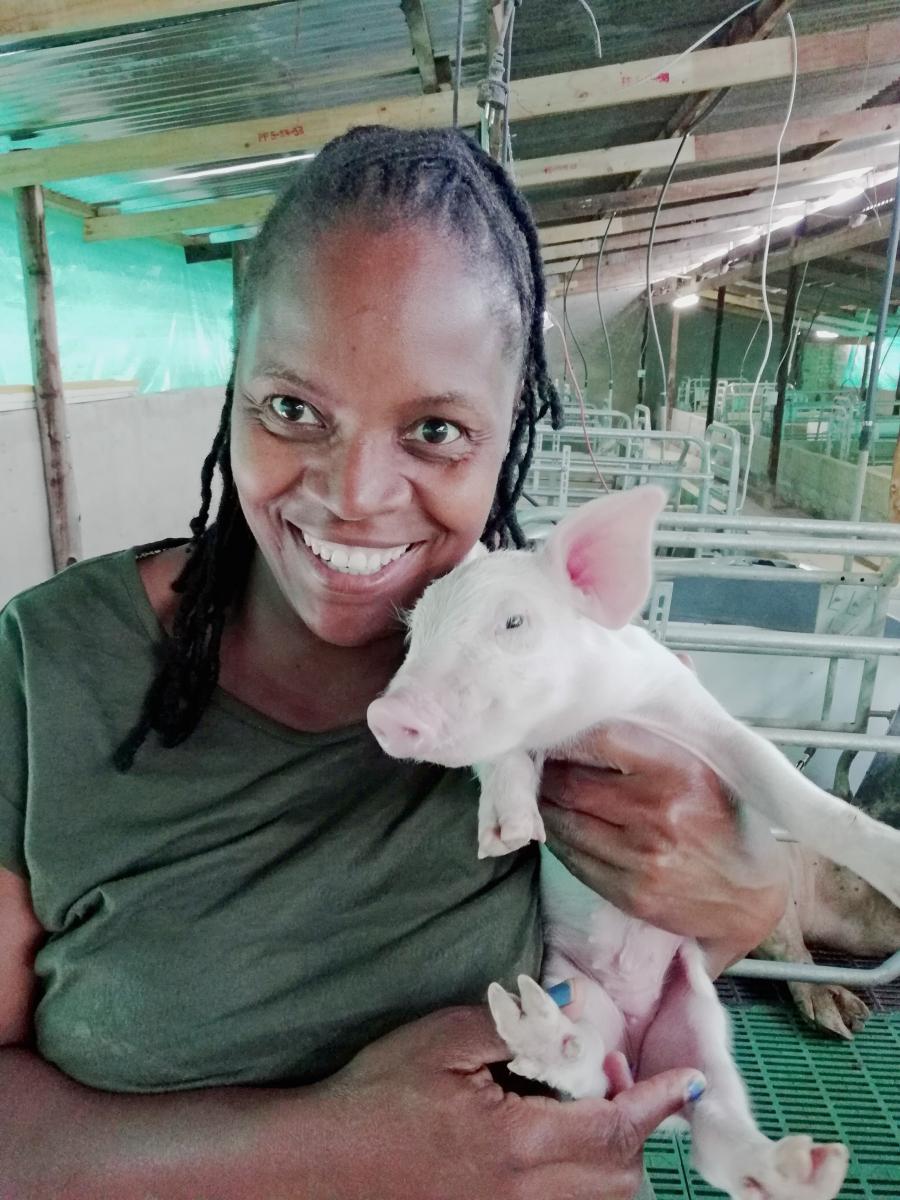
“I have been a pig farmer since 2003. I left my job as a nurse because I had a passion for farming. I want to encourage South Africans to be involved in farming, especially young people,” she said.
Mulungo owns Mulungo Agricultural Piggery and Crop in Modderfontein, Gauteng, which employs eight permanent workers and produces about 200 pigs a month for abattoirs in the area.
She has 220 sows and five boars and impregnates the sows via artificial insemination.
Mulungo’s love of farming started at a young age, when she would go to the field to help her mother.
“We had cattle when I was growing up and we just loved farming. Everything we ate came from the soil,” said Mulungo, explaining that her mother grew maize, peanuts and yogo beans.
The successful farmer’s journey was not always easy and she struggled in the beginning.
Politics does not come between sisterhood for KZN family
Politics does not come between sisterhood for KZN family LondekileThe Mngomezulu sisters Thandi and Neli from Molweni in Durban KwaZulu-Natal a members of different political parties but are able to live in harmony.
Thandi is a strong National Freedom Party (NFP) card caring member while Neli is an ANC (African National Congress) member.
Neli told Vukuzenzele that irrespective of their political differences there are still sisters. 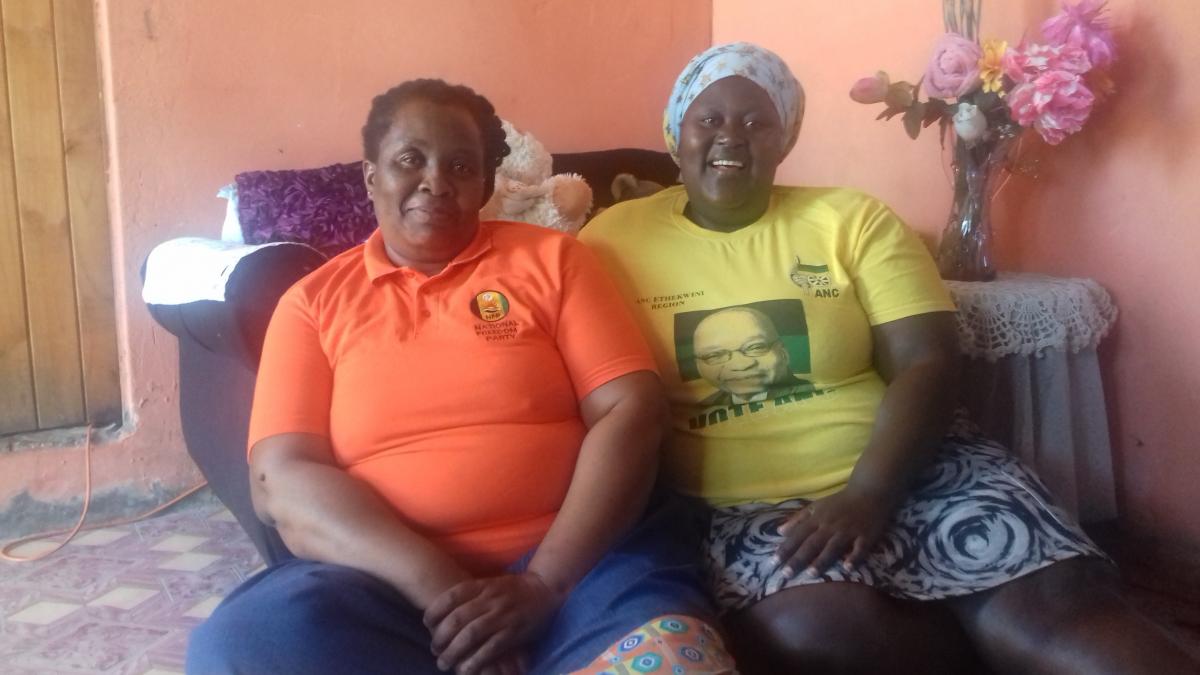
“We have respect for one another. When I left NFP to join ANC in 2014 I told my sister that I have taken a decision to be an ANC member. My sister didn’t label me as her enemy but she respected my decision.”
“If she cooks she dishes for everyone at home including me. We do all things that the family does together. Our political differences here at home and the way we treat each other has helped me on how to treat other people from different political parties,” Neli said.
Neli adds that when she comes across people who do not share the same political ideologies she does not see them as an enemy.
In recent months the KwaZulu-Natal province has been experiencing alleged political killings with ANC activist Musawenkosi Mchunu and IFP councilor Sibuyiselo Dlamini being shot dead in separate incidents.
After these incidents President Cyril Ramaphosa instructed Police Minister Bheki Cele, State Security Minister Dipuo Letsatsi-Duba, Justice Minister Michael Masutha, National Prosecuting Authority head Shaun Abrahams and National Police Commissioner Khehla Sithole to work as a committee to solve the suspected political killing in the province.
Neli strongly condemned the supposed political killing adding that it was taking her province to apartheid era where the ANC and the IFP were fighting which led to loss of lives.
“We do not want to see that happening again. People need to accept each other’s political differences. We cannot claim that we are free whereas we are still killing one another,” Neli said.
Thandi said enough is enough and stressed that people should stop killing each other.
“In politics they might be hot debate from time to time but it does not mean we should kill each other. Our leaders in parliament debate and argue but once are outside they share jokes. We should learn from them,” she said.
Minister Cele said the committee appointed by President Ramaphosa is awaiting the final report of Moerane Commission of inquiry which was established by provincial Premier Willies Mchunu in 2016 to investigate political violence in KwaZulu-Natal.
Roka Lebea tribe rejoice over land title deed
Roka Lebea tribe rejoice over land title deed LondekileThe Roka Lebea tribe is rejoicing after finally being handed the title deeds to the place they have called home for over two centuries.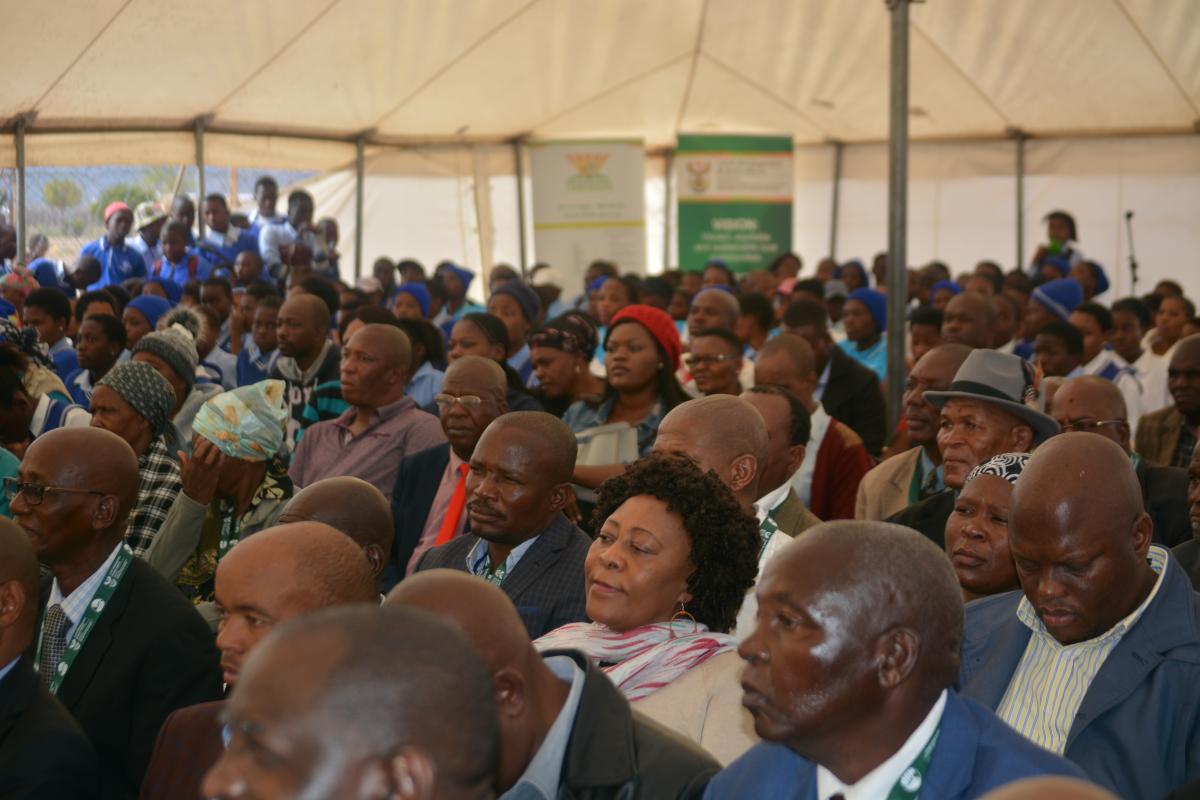
The Minister of Rural Development and Land Reform Maite Nkoana-Mashabane recently handed the title deed to the tribe leaders at the Seroka Primary School in Limpopo.
The Roka Lebea tribe is from the Ga-Seroka village, which is near Jane Furse in the Sekhukhune district municipality in Limpopo.
Their land claim was processed almost 20 years after it was lodged.
The traditional leader of the tribe, Kgoshigadi Seroka Tlakale Monica, had lodged a land claim on behalf of the tribe on 23 November 1998 with the Commission on Restitution of Land Rights. The tribe wished to acquire the formal rights to the Dingaankop 543 KS farm, which occupies 1035.5872 hectares (about 10 square kilometres). They have lived on this land from about 1800 to the present day.
The tribe was never physically removed from their home, but they have had informal unregistered rights to the land due to Section 11 of the Native Trust and Land Act of 1936, which prohibited the ownership in title or purchase of land by “natives”.
The claim has been processed under Section 3 of the Restitution of Land Rights Act of 1994.
One of the beneficiaries of the land claim, Maditau Makgwale, shared his excitement with Vuk’uzenzele.
“I am happy and proud that we have our own land, and we will be able to make a living out of it. We are planning to start agricultural projects and mining on the land, and we will continue to work together with government so that we will be able to create jobs for our people and for our children to afford educational opportunities.”
He said they would focus on crop production, but some community members also owned livestock, which gave the community a head start in their farming efforts.
“All members of our community are going to benefit from this land, especially the youth. We have about 600 people who will benefit from this title deed. The land is big enough for all of us, it is about 1035 hectares,” he said.
Makgwale discouraged the act of land grabs, which has been prevalent across the country in recent weeks. He said it was important for citizens to do things according to the law.
“Some of the people take up the land illegally but have no plans for it. It is only right to do things properly so that we can benefit from the land,” he said.
In her budget vote recently, Minister Nkoana-Mashabane said the department had already restored 3.5million hectares of land which could change the lives of those still stuck in the second economy.
SA withdraws Israel ambassador
SA withdraws Israel ambassador LondekileThe South African government has taken a strong stance against the violence carried out by Israeli armed forces along the Gaza strip.
The South African government has recently recalled its ambassador to Israel in protest against the Israeli attack in the occupied Gaza Strip.
The Department of International Relations and Cooperation (DIRCO) said the decision was made following Israel's deadly attack in the Gaza Strip in the middle of May.
“Given the indiscriminate and grave manner of the latest Israeli attack, the South African government has taken a decision to recall Ambassador Sisa Ngombane with immediate effect until further notice,” the department said.
The South African government said it condemns - in the strongest terms possible - the latest act of violent aggression carried out by Israeli armed forces along the Gaza border.
Israeli forces opened fire on Palestinians who were protesting against the inauguration of the US embassy in Jerusalem. The attack led to the deaths of over 40 people the injury of many Palestinian citizens and the destruction of property.
“As we have stated on previous occasions, South Africa reiterates its view that the Israeli Defence Force must withdraw from the Gaza Strip and bring to an end the violent and destructive incursions into Palestinian territories,” the department said.
The department said the violence in the Gaza Strip will stand in the way of rebuilding Palestinian institutions and infrastructure.
The routine actions of the Israeli armed forces present yet another obstacle to a permanent resolution to the conflict, which must come in the form of two states, Palestine and Israel, existing side-by-side and in peace.
The violence in the Gaza Strip comes in the year of Nelson Mandela Centenary. South Africa’s first democratic President would have celebrated his 100th birthday.
President Mandela was instrumental in resolving many conflicts throughout the world. He was forthright in his condemnation of Israel’s military occupation of the West Bank and Gaza Strip.
He was in favour of a negotiated settlement that would see Israeli’s and Palestinian’s living in peace.
He also called for concrete action by world bodies and states with influence to find solutions to the deadlock.
The late former President was resolute in his support of the struggle of the people of Palestine for self-determination. His message that there can be peace, security and friendship in the region has remained the cornerstone of South Africa’s approach in dealing with conflicts.
SANRAL at the core of road safety
SANRAL at the core of road safety LondekileSANRAL has erected fences on portions of two highways to keep pedestrians safe.
The South African National Roads Agency (SANRAL) has ensured the safety of residents within the eThekwini municipality in KwaZulu-Natal by erecting fences along portions of two highways.
Pedestrians living near these roads were being hit by vehicles when attempting to directly cross the highways rather than using the overhead bridges.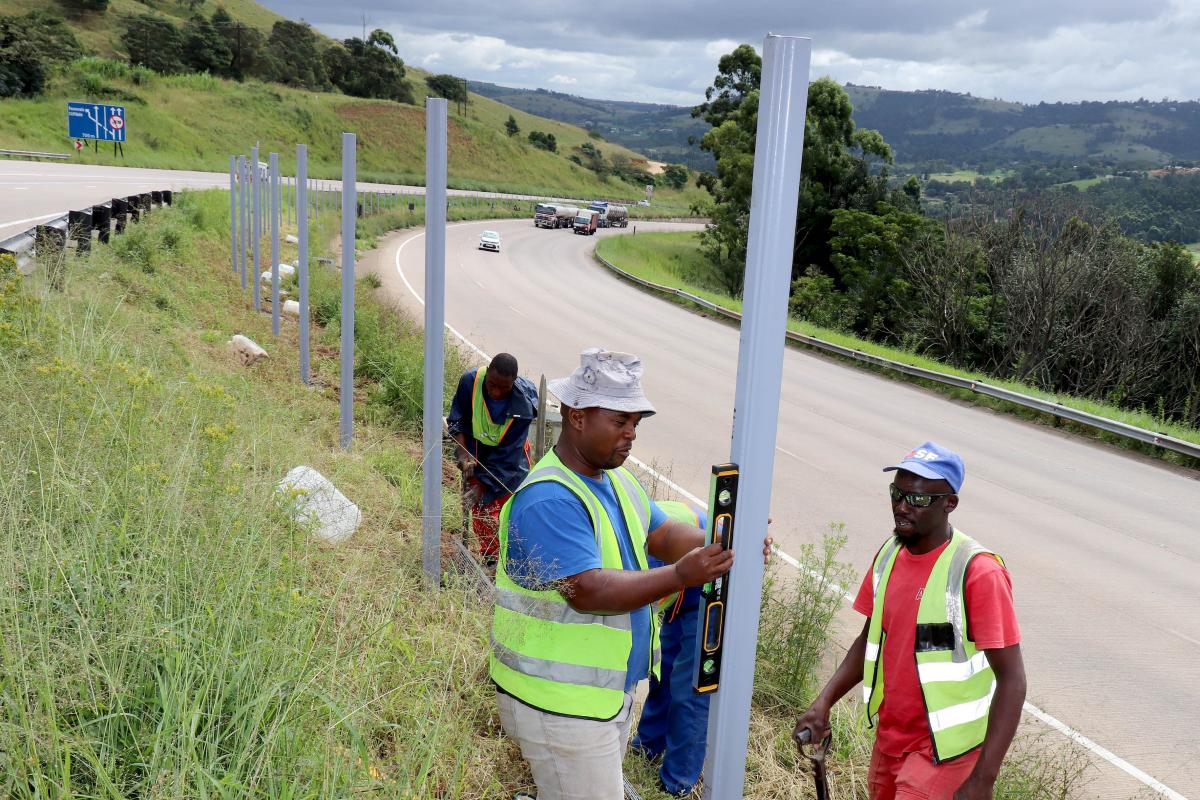
The fences have been erected along the N3 near Cliffdale, and on the N2 at Kwa Mashu. Each fence is two kilometres long.
SANRAL has previously erected fences on the N3 near the Mariannhill Toll Plaza to prevent hawkers gaining access to the plaza.
Bruno Cullen SANRAL’s Eastern Region project manager said pedestrians vandalised the fencing that had been erected along certain sections to prevent them from crossing the busy highway.
“We have experimented with vandal-proof fences which have so far proven to be effective in preventing people from crossing and causing an unsafe environment.”
The fencing, which is almost 2.5 metres high is manufactured from galvanized, pressed, high-density mesh panels with anti-cut dimensions and galvanised spikes bolted along the top.
It is not possible to climb this type of fence and it is difficult to cut.
“Pedestrians are the most vulnerable of all road users and road safety is an important priority for SANRAL.
“We ask for pedestrians’ cooperation to ensure that their lives are not placed in jeopardy by the deliberate and wilful destruction of the fencing,” said Cullen.
He urged pedestrians to use the pedestrian bridge as a safety precaution.
The ward councillor of Cliffdale, Mthetheleli Sibisi, said more than eight people have been killed in accidents in this area.
"We are happy that this area has been fenced. This project is going to help minimise accidents in the area, especially at night because most people who died here were crossing at night and not wearing bright clothes so cars couldn’t see them. We thank you SANRAL for coming up with this project," said Sibisi.
School girls given a helping hand
School girls given a helping hand LondekileGirls from disadvantaged communities now no longer have to miss school during their menstrual cycle.
Girls who cannot afford to buy sanitary pads sometimes miss about 60 days of school a year. This is according to the Northern Cape Department of Sport, Arts and Culture.
To ensure that this does not happen the department has partnered with the Clicks Helping Hand Trust to distribute reusable sanitary towels at schools across the province.
The joint campaign was recently launched in Hopetown at Steynville High School and will be rolled out to rural schools.
The department said the distribution of reusable sanitary towels will ensure that girls can attend school during menstruation and will financially benefit impoverished families.
 The reusable sanitary towel has a life span of three to five years and it is environmentally friendly.
The reusable sanitary towel has a life span of three to five years and it is environmentally friendly.
Developed, designed and manufactured by Project Dignity founder Sue Barnes the Subz pads are made from five layers of specialised fabrics which earned the product absorbency approval from the South African Bureau of Standards.
Barnes developed the product after learning about some girls’ dire situation at African schools.
Sports, Arts and Culture MEC Bongiwe Mbinqo-Gigaba said the lack of affordable sanitary products puts girls at a disadvantage in terms of education and prevents their mobility and productivity as young women.
“Without sanitary products girls are excluded from their right to an education as stipulated by the Constitution of South Africa,” said the MEC.
Clicks manager Donna Davids said the inability of girls from disadvantaged backgrounds to show up at school for a week during their periods has a profound negative impact on their education.
“While we will continue with our activations which aim to provide all young South African women with reusable sanitary pads, we are thrilled that the public is also able to purchase them,” she said.
The department has appealed to the public to support the campaign by visiting their nearest Clicks branch and making a donation of R29,95 at till points.
The Clicks Helping Hand Trust is a registered non-profit organisation that offers free clinic services, through its network of clinics, to disadvantaged South Africans who do not have a medical aid and lack access to basic primary healthcare services.
South Africa mourns the passing of Sam Nzima
South Africa mourns the passing of Sam Nzima LondekileSPORT, ARTS AND CULTURE
Sam Nzima will forever be remembered as a man who had the courage to fight apartheid with his camera in hand.
Renowned photographer Sam Nzima (83) recently passed away at a Nelspruit hospital following a short illness.
Nzima will be remembered for putting South Africa and the 1976 student uprising on the international stage with the photographs he took at the time.
Nzima took his last breathe on 12 May.
Nzima’s most famous photograph is of young Mbuyisa Makhubu carrying a slumped and bleeding Hector Peterson away from the rioting crowd in Soweto on 16 June 1976.
The image is an emotional one with Hector’s sister Antoinette Peterson with them. 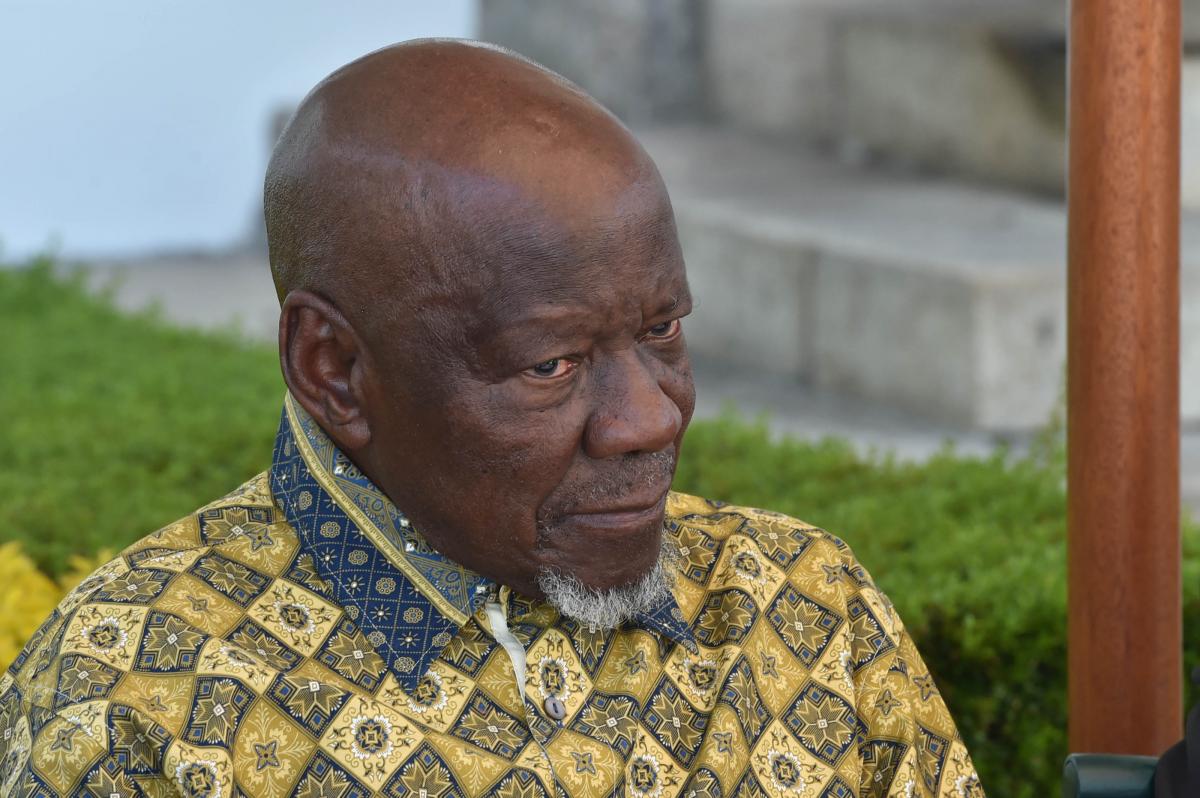
The photograph became an international symbol of resistance against apartheid and being forced to use Afrikaans as a medium of instruction in black schools.
President Cyril Ramaphosa expressed deep sadness at the sudden passing of Nzima, who was a recipient of the National Order of Ikhamanga.
“Sam Nzima was one of a kind. His camera captured the full brutality of apartheid oppression on the nation’s psyche, the history of the defiance campaign through to forced removals and the Soweto student uprisings.
“We convey our heartfelt condolences to his family and may his soul rest in peace,” said President Ramaphosa.
The South African National Editors’ Forum (SANEF) encouraged young journalists to draw inspiration from Nzima.
“He had unwavering commitment to transformation and the deepening of democracy at huge personal risk. As an industry we are honoured to have had journalists such as Nzima in our ranks,” a SANEF statement read.
Nzima was born in 1934 in the rural village of Lilydale in Mpumalanga near Bushbuckridge.
His interest in photography developed at a very young age when he was fascinated by one of his teacher’s camera and the concept of images coming out of a box.
He bought himself a Kodak Box Brownie and went to the Kruger National Park during school holidays to take peoples’ photographs for a fee.
Nzima moved to Johannesburg to seek work and got his first lucky break as a photo journalist at The World newspaper.
When he took the photograph of Hector Peterson he was still working for The World and was covering the students’ strike for the paper.
After this image was published in The World Nzima was put under house arrest for 19 months in Lilydale.
It took 22 years for Nzima to receive the photograph’s copyright. He was assisted by a legal firm.
Transforming the future of work
Transforming the future of work LondekileINTERNATIONAL RELATIONS / AFRICA NEWS
The work of the ILO Global Commission is in line with the creation of decent jobs to ensure young South Africans have skills in the changing workplace.
President Cyril Ramaphosa has called for greater efforts to accelerate the creation of a just, humane and inclusive world of employment for all saying it could no longer be business as usual.
The President was speaking as co-chair of the International Labour Organisation’s (ILO) Global Commission on the Future of Work in Geneva, Switzerland.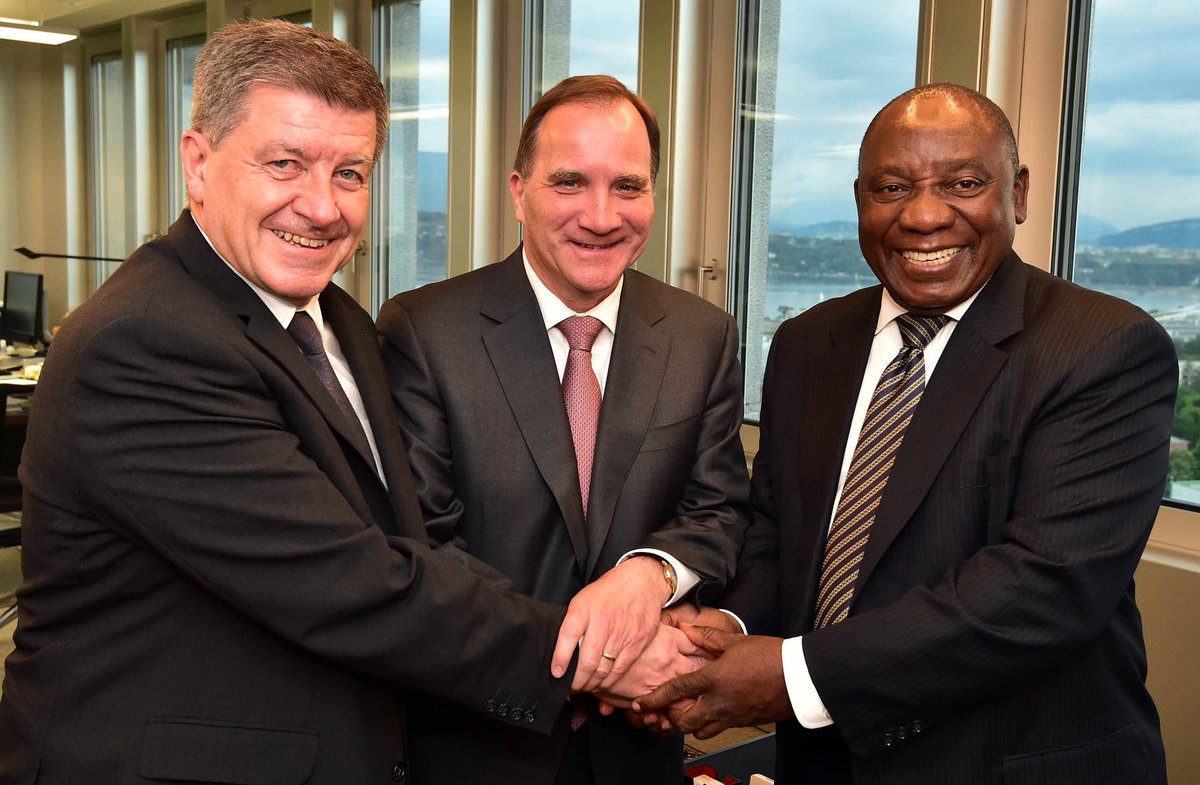
He added that young people, women and those with disabilities must be at the centre of efforts by the global community for social justice as it responds to the challenges of a rapidly transforming global workplace.
“The Future of Work will enhance the involvement of women, young people and disabled people in the world of work and how they can participate in a much more effective way. This concept will assist in creating more jobs, generate growth, and increasing fairness,” said President Ramaphosa.
President Ramaphosa co-chaired the third meeting of the Commission together with the Prime Minister of Sweden, Stefan Löfven. The gathering considered the Framework on the Global Commission’s Final Report which had focused partly on the issue of the disabled.
According to The Presidency, the Commission is important as it seeks to convince business and government to regard workers as an asset rather than an expense.
“This requires a new global social contract for creating and distributing value in the economy, including collaboration on enhancing productivity and reducing inequality, among others,” the Presidency said in a statement.
The High-Level Global Commission comprising experts from government, business and labour was established by the ILO in 2017 to assess the rapid transformations taking place in the global economy and world of work, and identifying the key challenges and recommendations.
The work of the Global Commission aligns with government’s focus on the creation of decent and sustainable jobs, and efforts to ensure young South Africans have the skills necessary to thrive in the changing workplace.
President Ramaphosa assumed his position as the new co-chair of the Global Commission on the Future of Work of the ILO while in Switzerland.
Tshwane motorists say goodbye to long queues
Tshwane motorists say goodbye to long queues LondekileLOCAL GOVERNMENT
The new online booking system will allow motorists to make an appointment to renew their licenses at centres around the metro.
Motorists in the Tshwane Municipal area can now make bookings to renew their driver’s licenses in the comfort of their own homes thanks to a new online system introduced by the city.
The system was launched in Pretoria and is designed to speed up the process of service delivery.
The booking system is free of charge and can be used to secure a booking at Centurion, Akasia, Bronkhorstpruit and Waltloo licensing centres and is available for download on https://onlinecompanysa.co.za/book
Tshwane Member of the Mayoral Committee for Transport Sheila Lynn Senkubuge said the move would go a long way towards improving service delivery in the region.
“Lines at licensing centres are extremely long and people spend time in long queues and even have to take leave just to get things done.”
Senkubuge said in some licensing centres there is no parking for customers which makes the whole process tedious.
“We are thrilled to announce that this will no longer be the case. What we have embarked on will help us deal with the influx at our licensing centres due to this year being another five-year cycle return for thousands of applicants who converted from the green barcoded identity book driving licence to the legislated licence cards of 2003,” said Senkubuge.
To use the system, drivers can register on the Online Company website to make the booking. Once at the testing station they can skip the queue by presenting a printed email with the appointment details to security officials.
Motorists are also reminded to bring an optometrist’s certificate for the renewal because doing so can reduce the time spent at the data capturing desk by around 60 percent.
In the future the time taken to collect licenses could drop to 15 minutes according to Senkubuge.
Motorists can also opt to get their driver’s license card delivered to their homes or places of work at an additional fee.
It will cost a motorist R96.45 to get their driver’s license delivered in most Gauteng areas.
Residents in Hartbeespoort Dam Brits, Vereeniging and Vanderbijlpark will pay R141.41 with drivers in Rustenburg paying R204.34 to get their cards delivered to their doorstep.
Wall of remembrance to honour fallen SA soldiers
Wall of remembrance to honour fallen SA soldiers LondekileSouth African National Defence Force (SANDF) troops killed in the pursuit of peace have been honoured with a wall of remembrance at the SANDF Mobilisation Centre in De Brug, Bloemfontein.
The unveiling of the wall commemorated the International Day of United Nations Peacekeepers, which takes place annually on 29 May. On this day, the SANDF pays tribute to those SANDF members who died while serving under the United Nations (UN) Peacekeeping Missions Flag. 
The United Nations General Assembly designated 29 May as the International Day of United Nations Peacekeepers to remember the dedication and courage of soldiers who lost their lives in preserving peace. The date commemorates the establishment of the first UN Peacekeeping mission in Palestine in 1948. The theme for this year is, “70 Years of Service and Sacrifice.”
The SANDF invited families from around the country for a day-long programme that included the unveiling of the wall and a wreath-laying ceremony led by defence force officials. The wall is engraved with the names of SANDF soldiers killed during UN peacekeeping operations in Africa and around the world.
Among the relatives present was Elizabeth Mazimbela from Mtubatuba in Kwazulu-Natal. Her stepfather, Obed Dlamini, had served with the SANDF since the 1990s.
Mazimbela remembered Dlamini being deployed to various countries during his years with SANDF.
“He would come and go. Once he was gone for a year. He would come back, and then he would be gone for another six months. But he was like a real father to me. He was everything to us,” she said.
Dlamini was killed in a military vehicle accident while on a mission in the Democratic Republic of Congo (DRC) in 2005. The tragic incident took its toll on the family, said Mazimbela.
“We were told that he had died in a car accident. I only saw the pictures. The SANDF called my mother with the news. She had to go to the DRC to identify his body and go to the scene of the accident. She never recovered from this and it affected her mentally. We don’t know where she is.”
Seeing her stepfather’s name on the wall of remembrance made Mazimbela emotional.
“I broke down when I saw his name there. My heart broke. But it also made me feel like he is still around. He is still here with us,” she said.
According to the United Nations Peacekeeping website, UN peacekeeping missions work in areas of conflict to protect civilians, reduce violence, strengthen security and empower national authorities to assume these responsibilities. Host countries are given the assistance they need to become more resilient to conflict and sustain long-term peace by addressing root causes of conflict.
There are currently 14 peacekeeping operations around the world. In Africa, missions are in operation in several countries including the DRC, Central African Republic (CAR), and the Republic of Southern Sudan. More than 3 700 military, police and civilian personnel around the world have lost their lives in service of peace since 1948.
Water brings to relief to Nongoma community
Water brings to relief to Nongoma community JoyFor the first time in her 27 year-life, KwaNongomo resident Siphilile Gazu has received clean running water.
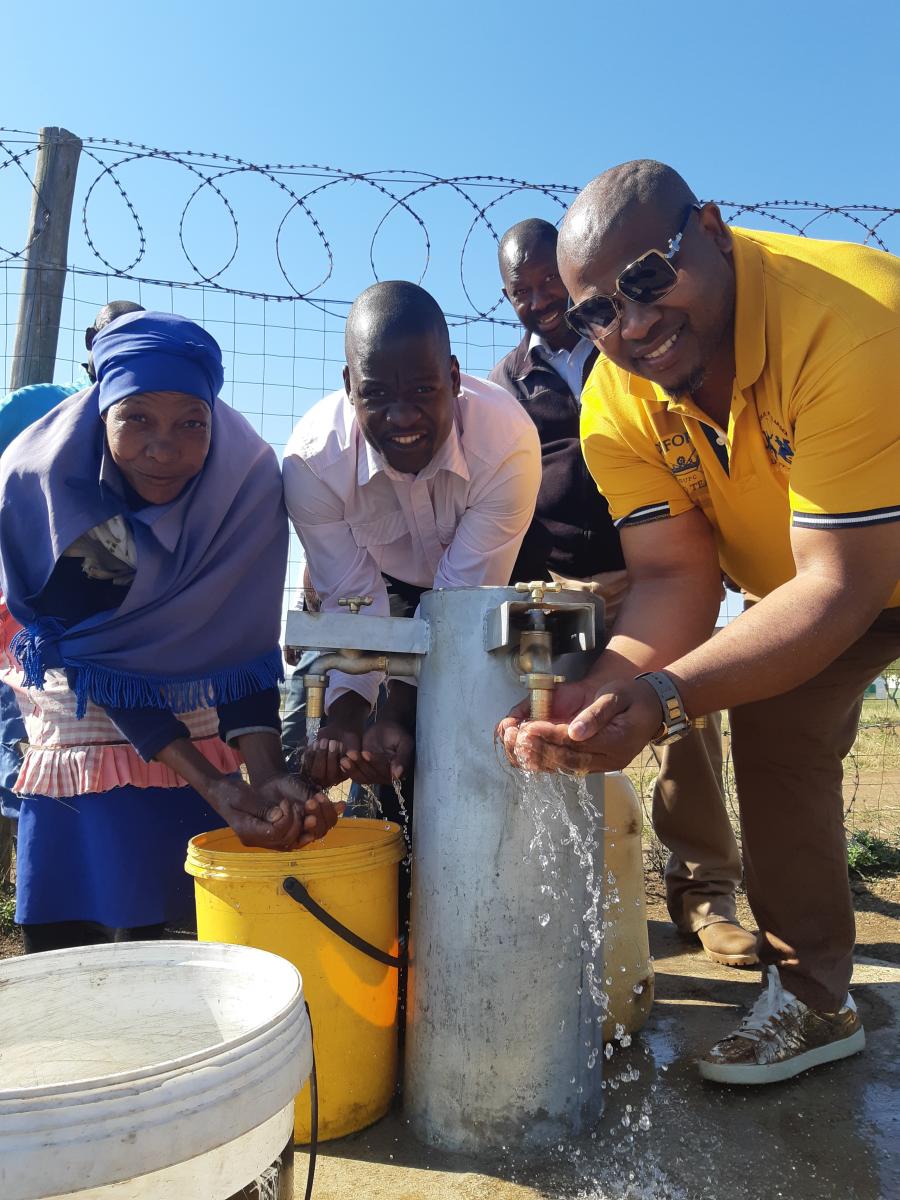 This was after a major project spearheaded by Mhlathuze Water on behalf of the Department of Water and Sanitation, which installed water supply infrastructure to communities living in the Nongoma and Abaqulusi Municipalities in the north of KZN.
This was after a major project spearheaded by Mhlathuze Water on behalf of the Department of Water and Sanitation, which installed water supply infrastructure to communities living in the Nongoma and Abaqulusi Municipalities in the north of KZN.
“Having a communal tap in my area is going to make things so much easier. In the past we used to walk the nearest river to fetch water which was dirty,” said Gazu.
She added that ever since she was born her family always struggled for water.
The ongoing project has already brought relief to thousands of households and created job opportunities.
Mhlathuze Water Interim CEO Mthokozisi Duze visited Nongoma to get a first-hand account on progress made thus far on the project and said it was part of the writing of a new chapter in the lives of the largely rural communities.
“We are extremely elated that finally people who had never before had convenient access to safe drinking water at the turn of a tap are finally able to do so. This project to supply water to the communities of Nongoma and Abaqulusi is ongoing...our goal is to ultimately see everyone effortlessly accessing this precious liquid.”
The R96-million project has resulted in more than 6,000 households receiving tap water and has helped create some 200 jobs during its implementation phase.
Another resident Anne Myeni chose to quote from scripture in reaction to news that for the very first time in her 48-years as a resident of Nongoma she would be receiving clean drinking water from a tap.
“We feel like we have received manna from heaven…our problems are finally over,” said Myeni.
Myeni previously had to queue for the arrival of a water tanker or make early morning treks to the river to draw water before it became cloudy and muddy due to the cows that also shared the river with local people. The project offers a reprieve from a challenge that had become the bane of their lives.
Meanwhile Minister of Water and Sanitation Gugile Nkwinti announced in his 2017/18 Budget Vote that contracts have been signed and service providers are currently rendering services amounting to R7.5 billion, of which R6.3 billion is for infrastructure projects for the provision of water and sanitation around the country.
He also said R1.1 billion has been set aside for operational goods and services.
Young doctor a beacon of hope
Young doctor a beacon of hope UrsulaFree-spirited yet practical and proactive sums up the young and successful Dr Nhlakanipho Gumede (34), who firmly believes in leading by example, values, professionalism, respect and innovation.
Born in Mbazwana in the north-eastern part of Kwazulu-Natal and raised by his grandmother, Gumede and his siblings came from a poor family but “never went hungry. 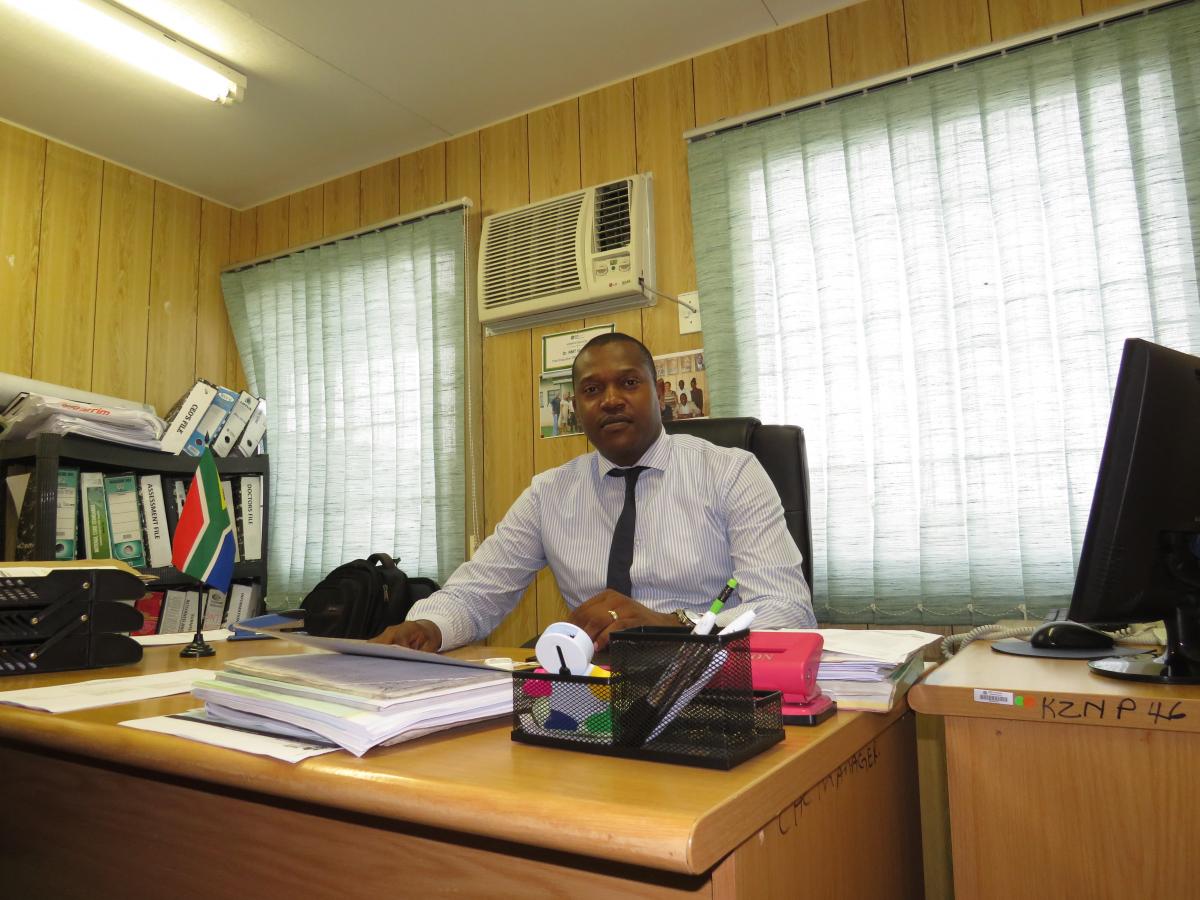
“We had a school, clinic and shops close to home, but we didn’t have electricity and had very little water until later in life when we had a tap in our yard. I grew up in a rural area where civilisation and life was evolving,” he recalled.
Gumede completed his Medical degree in Cuba in 2010 at the Instituto Superior de Ciencias Medicas de Villa Clara but his training required that he completes his final year in South Africa and he enrolled at Wits University. He then wrote his Cuban exams and obtained a Doctor en Medicina (Doctor in Medicine) degree which is equivalent to a MBBCh/MBchB, at the age of 26.
The passionate healthcare professional “always had a thing for health” even though he didn’t believe that he would become a doctor one day.
“I remember asking why only white or Indian men worked in pharmacies and why black youth were not taking up these positions. When I was growing up people were dying from diseases. I saw a lot of Malaria in my area and I always wanted to work at a health institution but I never wanted to become a doctor even though everyone at home always thought that I would become one,” he said.
Grabbing opportunities
One day Gumede saw an advert looking for students who wanted to study medicine in Cuba. He didn’t miss the opportunity. “This was going to be the financial alleviation my family needed, especially my mother who was financing my tertiary education,” he added.
Gumede was just 31 when he took on the challenging and exciting role of acting CEO at Pholela Community Healthcare Centre in Bulwer, KwaZulu-Natal. A year later in 2016, he was appointed as CEO.
He has made fighting disease and poverty his mission, giving hope to others and solving any problems that arise at the healthcare centre.
“I enjoy taking good government policies and putting them into practice at grassroots level and the relationships that I have with patients and employees. What is most fulfilling though, is to see my team being actively involved in the development of strategies that guarantee that our people and society receive the healthcare services that they deserve.
“To be the one that pushes this agenda makes me happy about my job. After all, prevention is better than cure,” said Gumede.
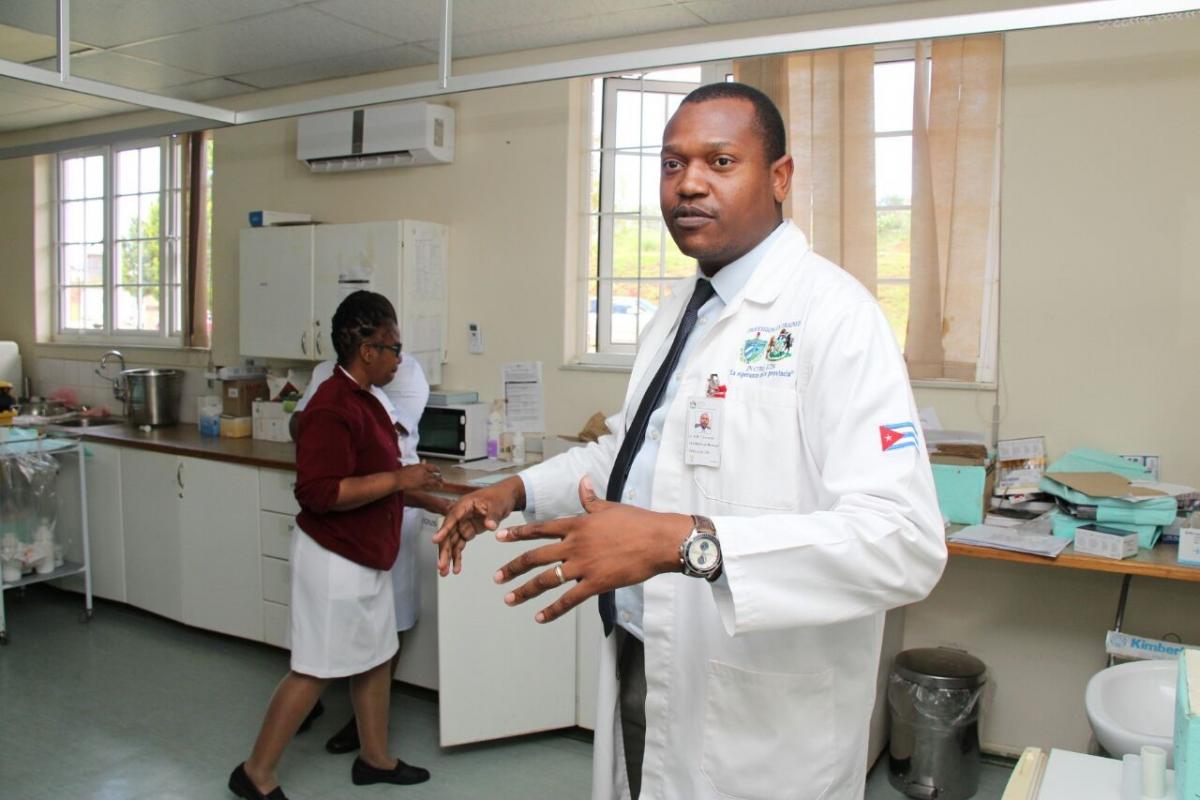
Teenage pregnancy and HIV
Pholela’s greatest challenges include the high incidence of HIV and teenage pregnancy. “It is medically proven that teenage pregnancy is a risk factor of HIV. We are worried about the high number of teenagers who fall pregnant. The fact that they are pregnant means that they did not use protection therefore they are at risk of sexually transmitted infections such as HIV,” said Gumede.
Pholela is working on a strategy that includes teenage pregnancy campaigns in schools and educating the community to stop this epidemic.
“We are also planning a huge event in June 2018 that will involve Operation Sukuma Sakhe, traditional leaders, municipalities and all government departments. It will help us to educate more teenagers and ensure that the message is spread not only to them also, but to the community at large,” he added.
Gumede has his sights firmly set on obtaining a Business Administration degree majoring in health. From there he wants to obtain his Masters in Public Health and a PHD.
Gumede’s message to youngsters this Youth Day is clear. “It’s all in our hands. The 1976 generation laid the foundation and the 1994 elections gave us freedom to start taking control of our country. The government cannot give you everything on a platter. Some things you must work hard for. Don't wait for government to give you anything. Wake up and fend for yourself. There is a great world out there waiting for you,” he said.